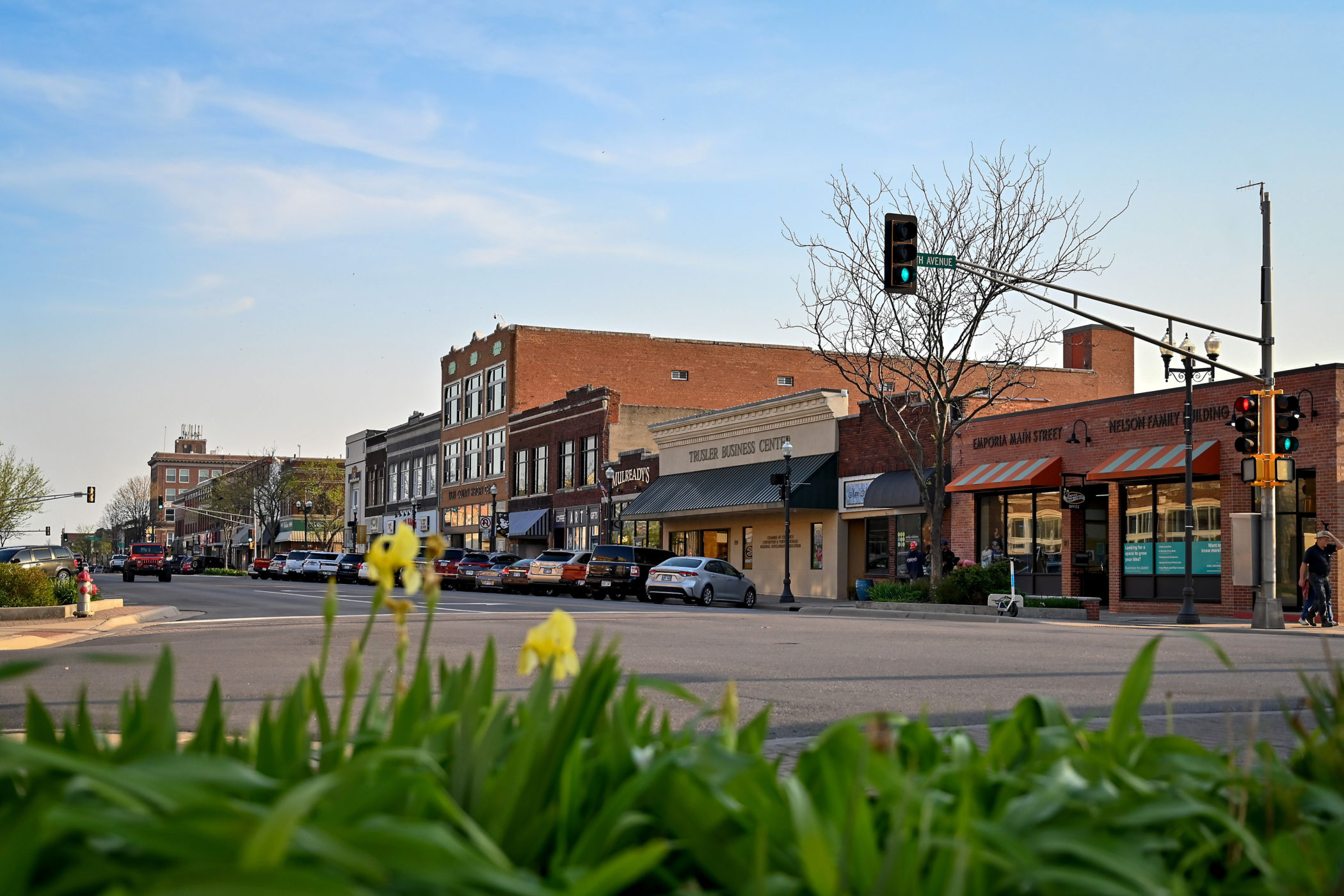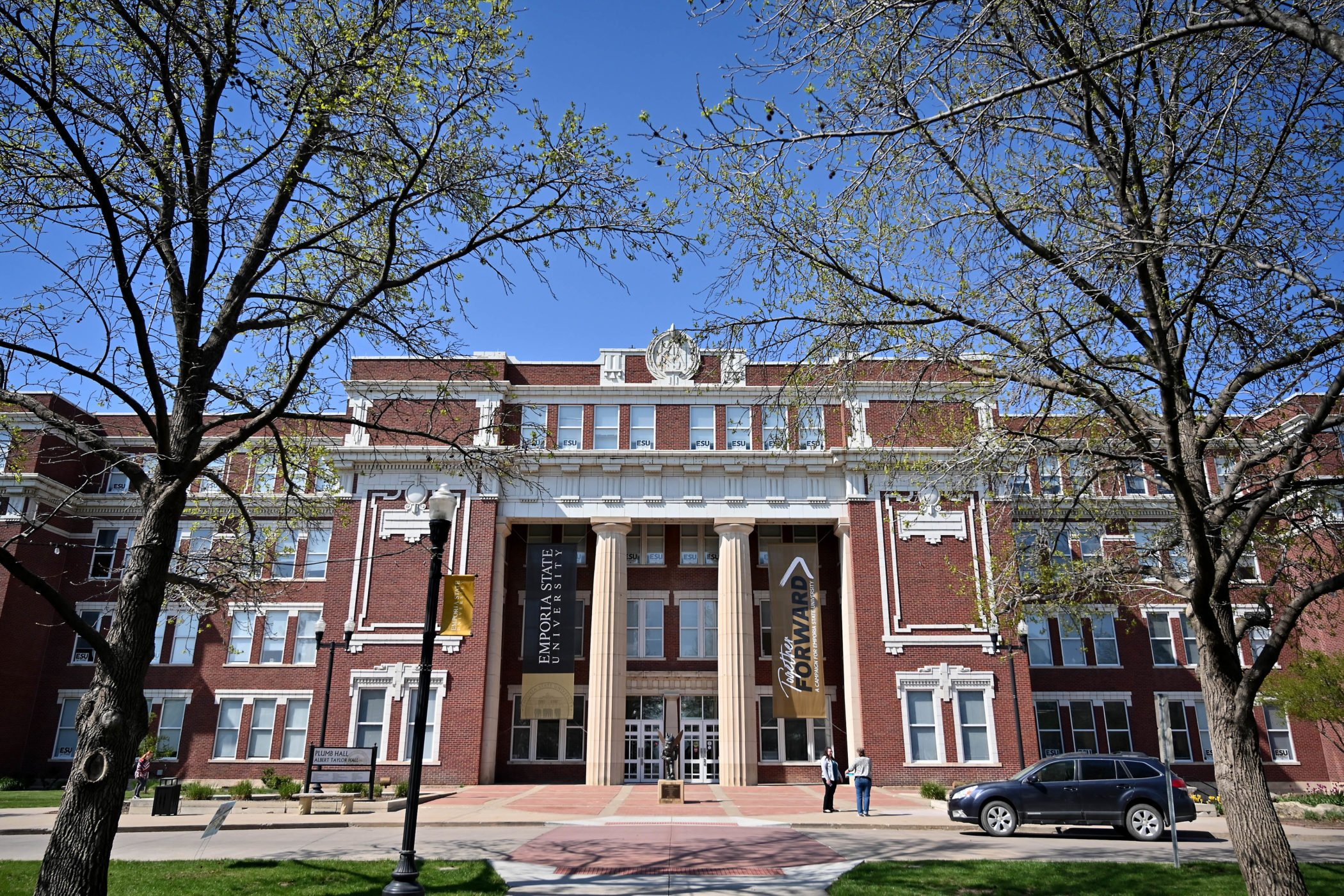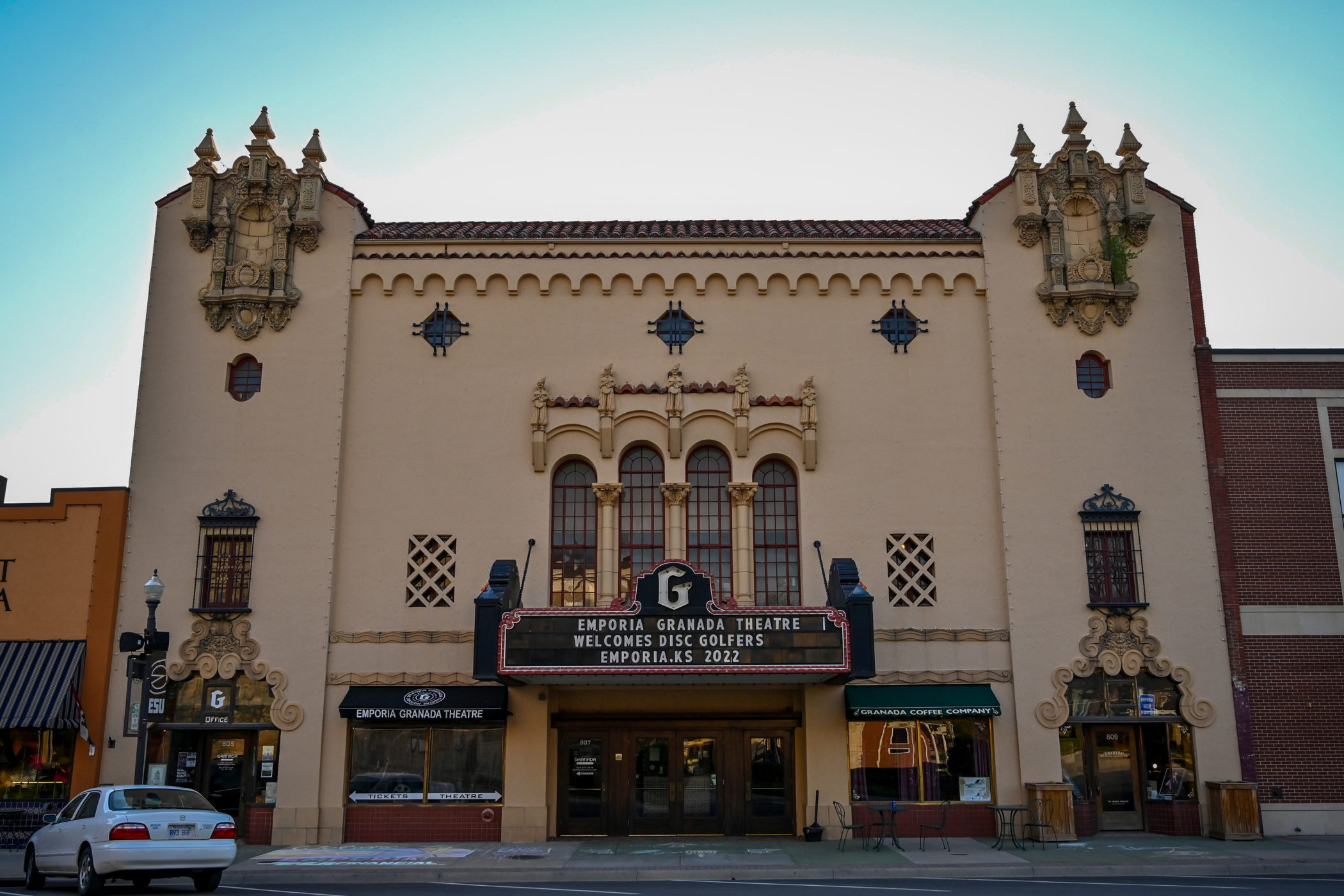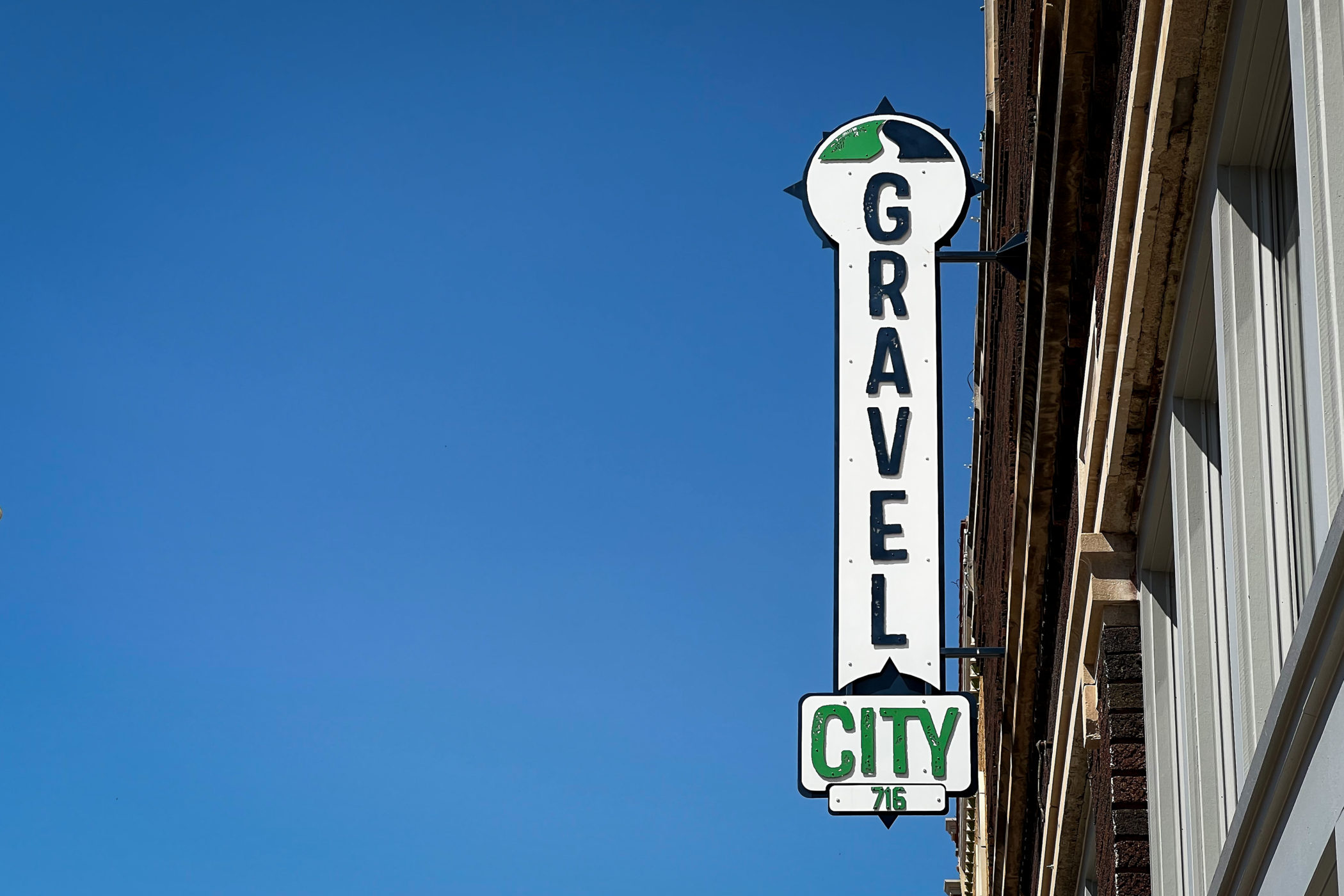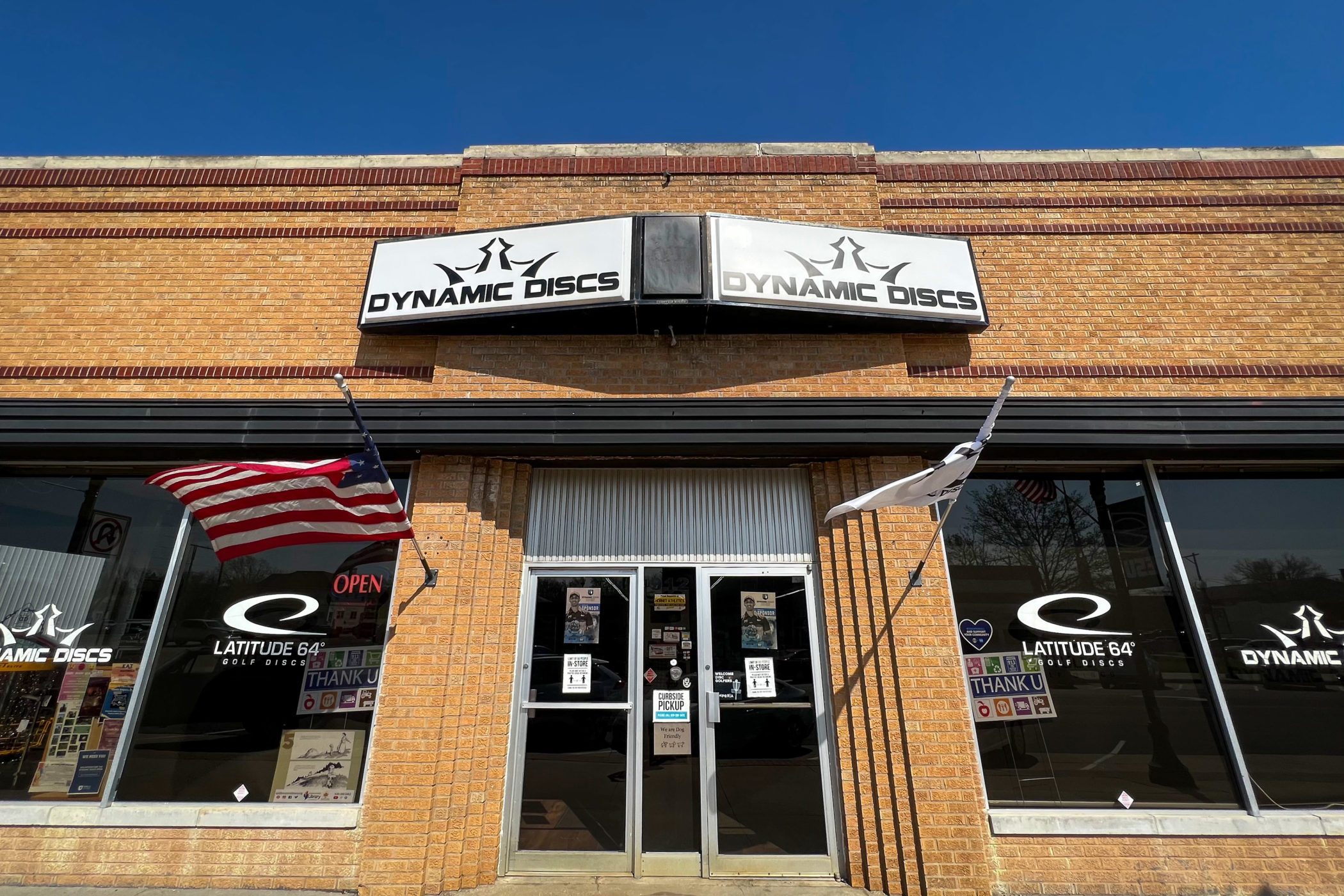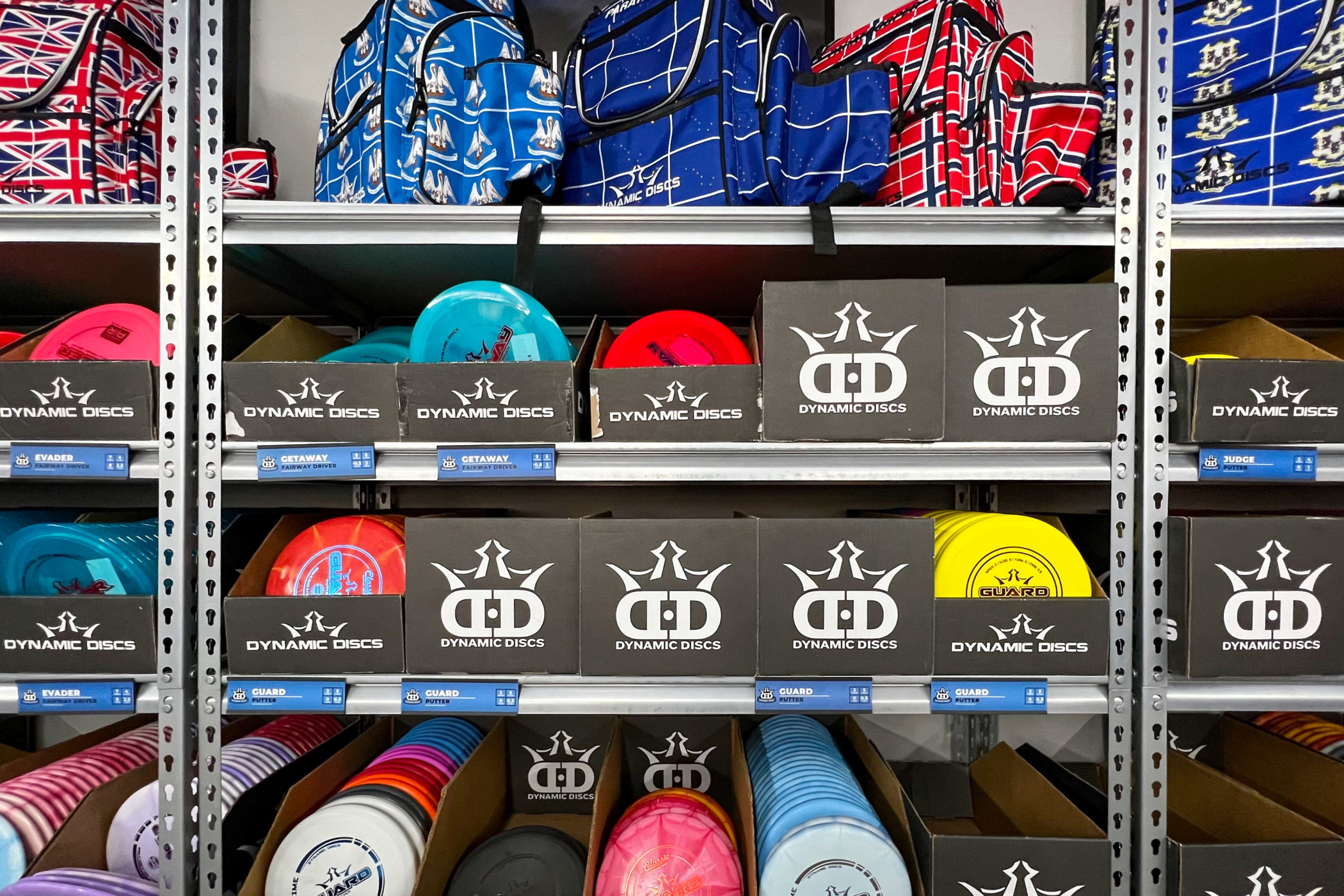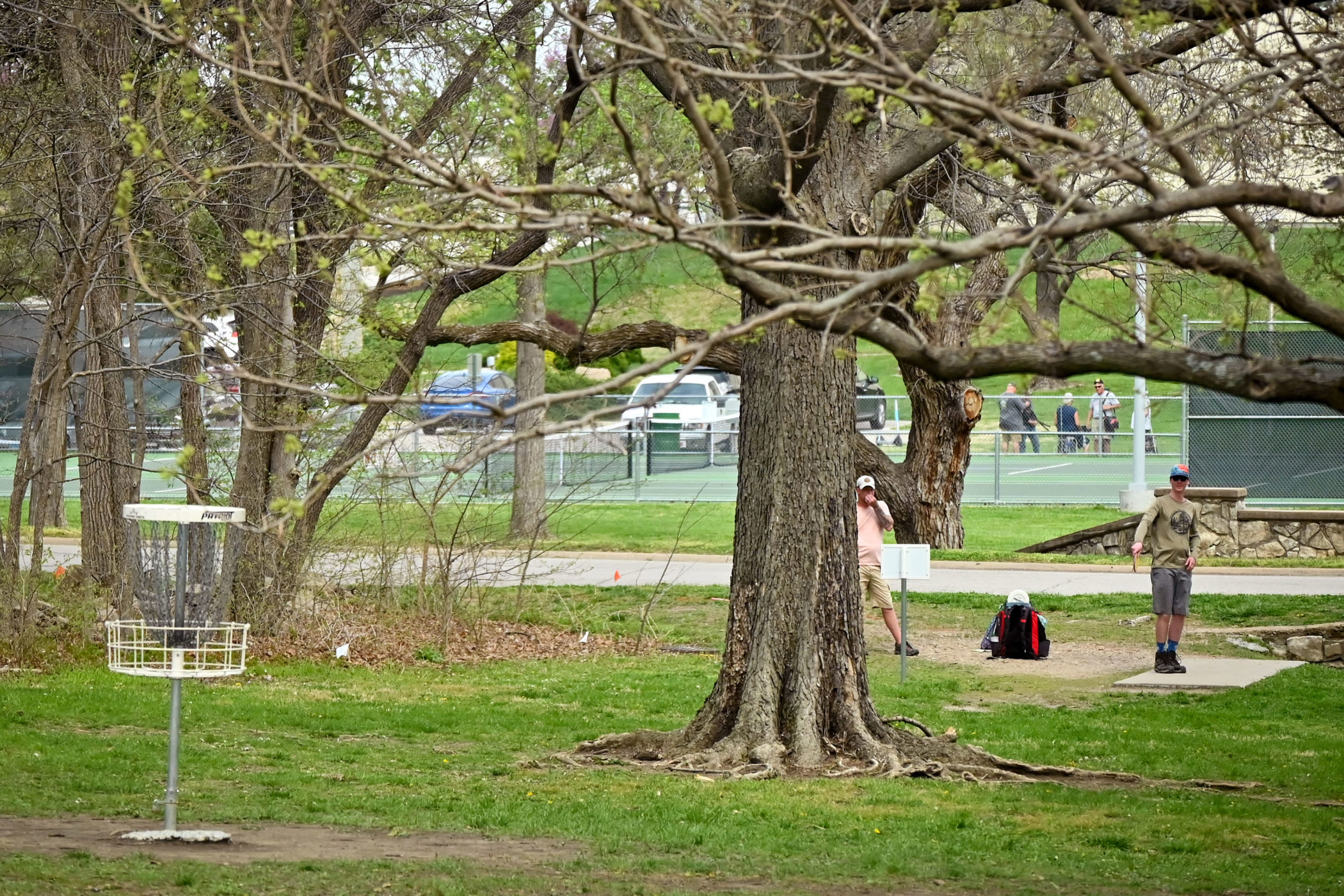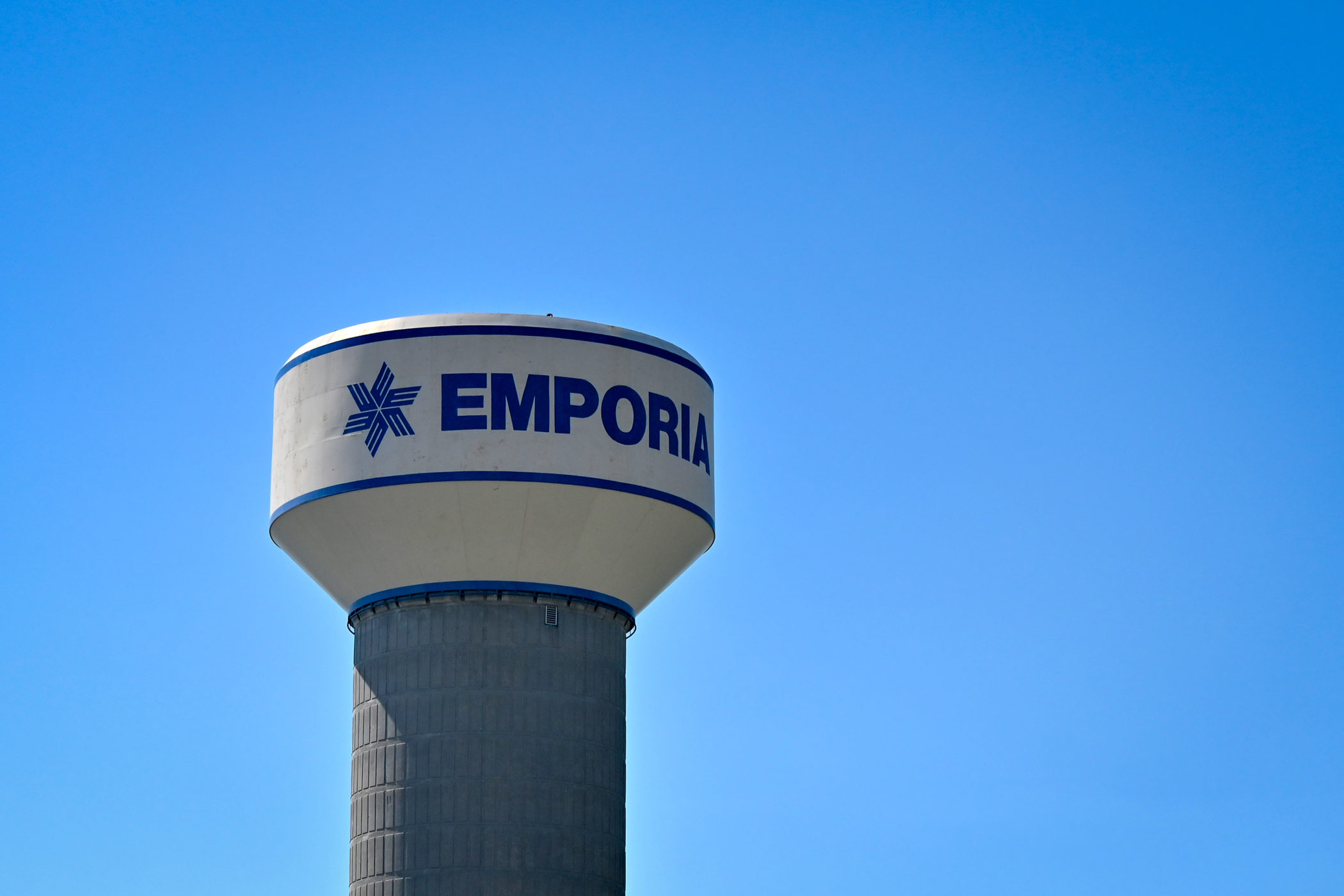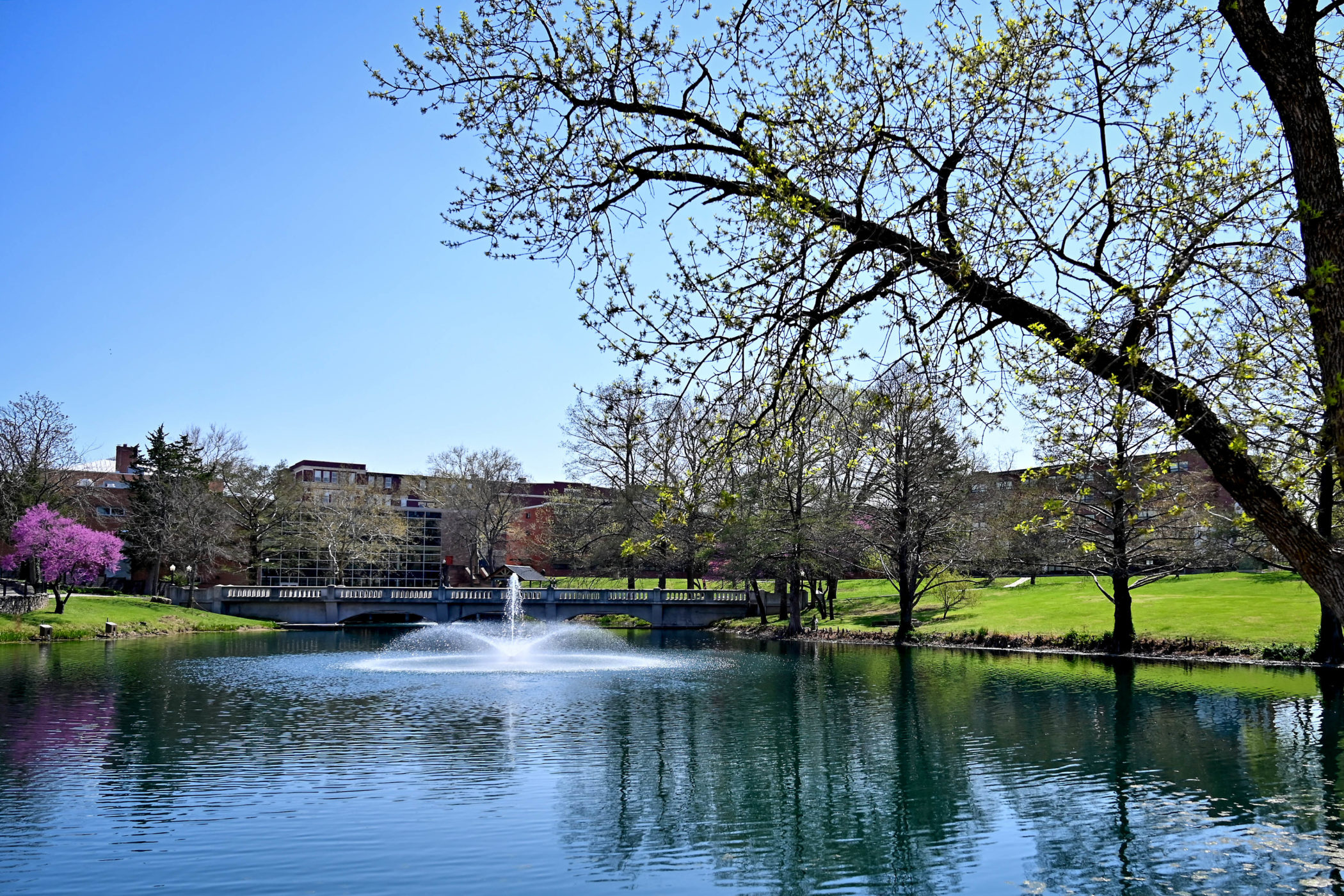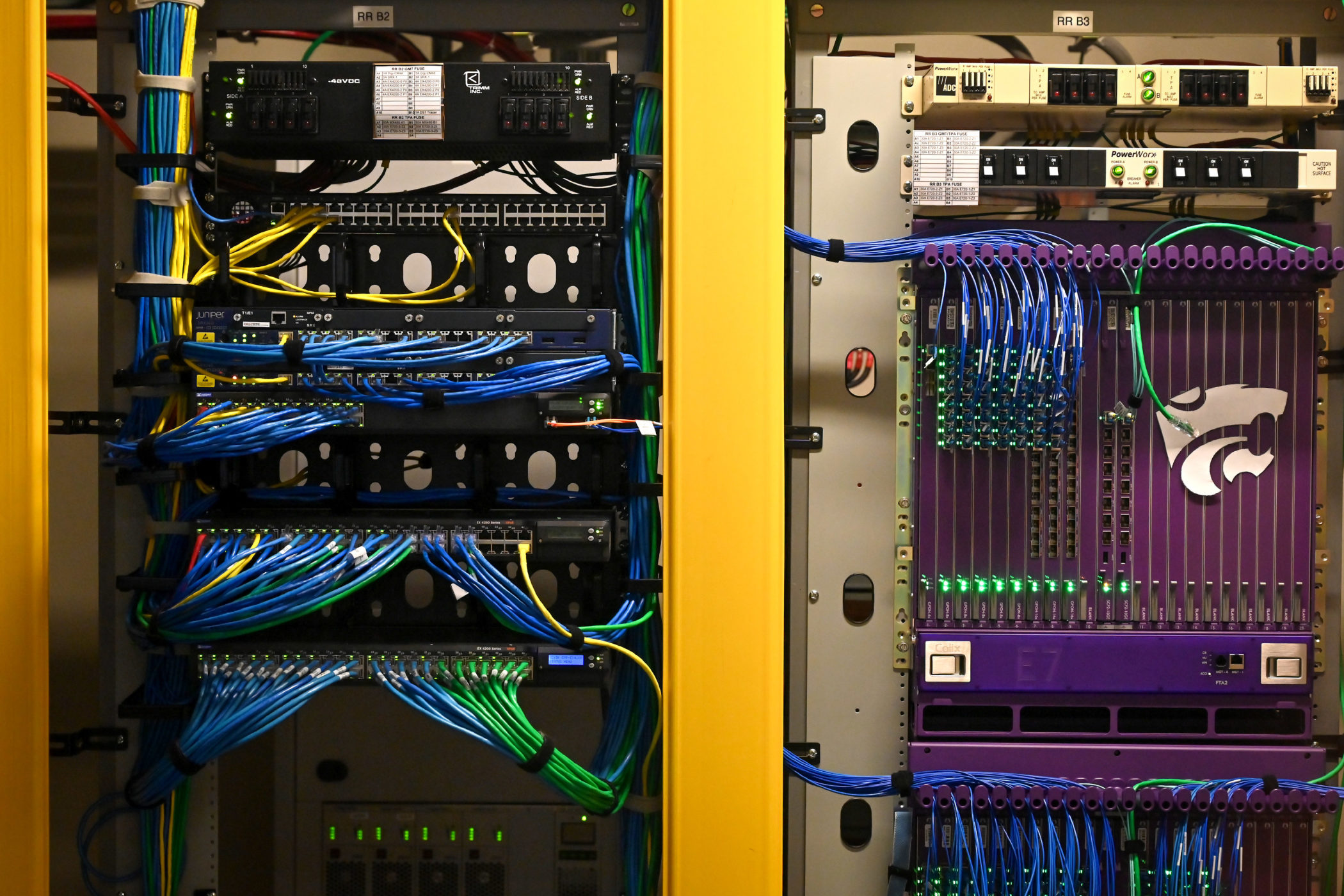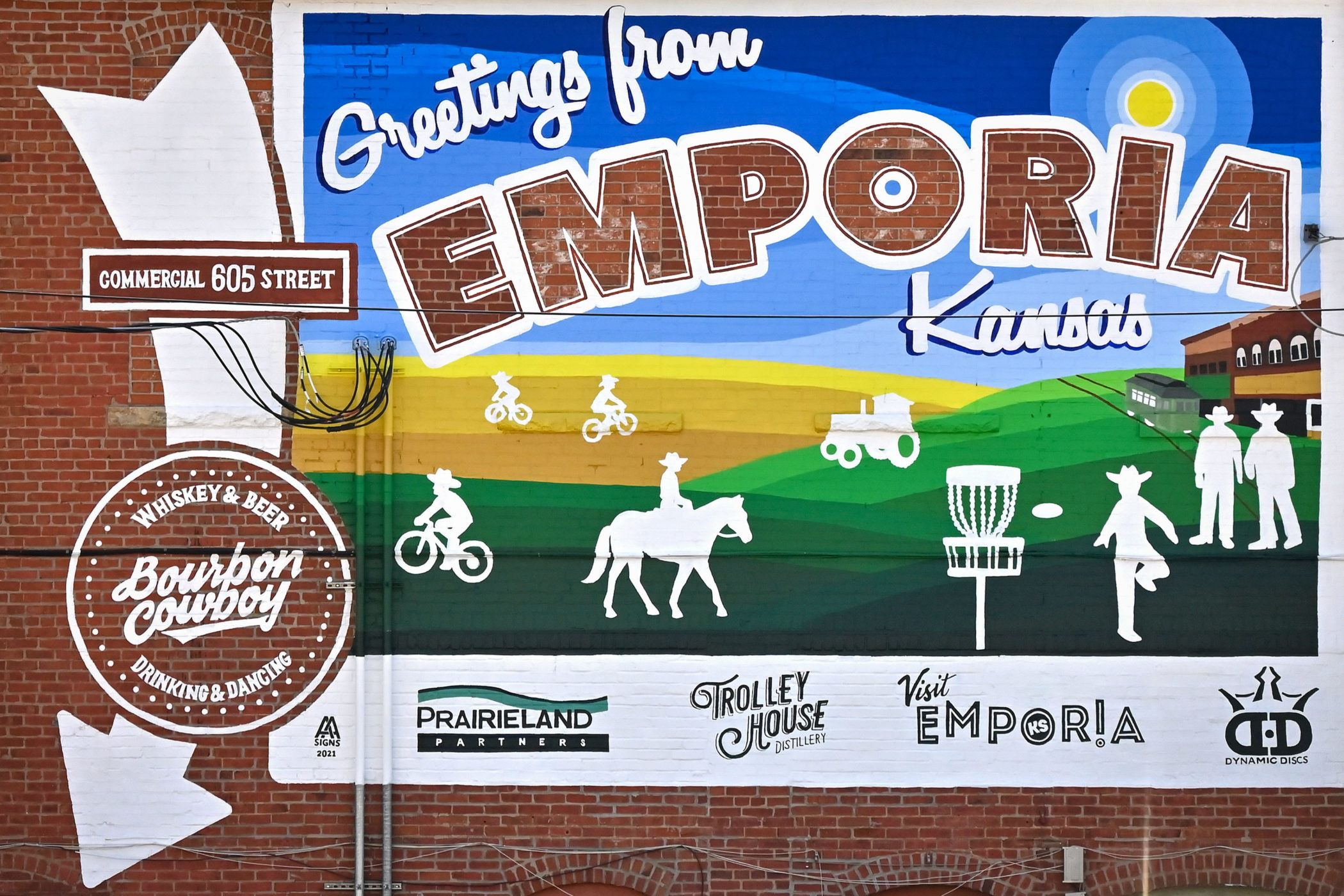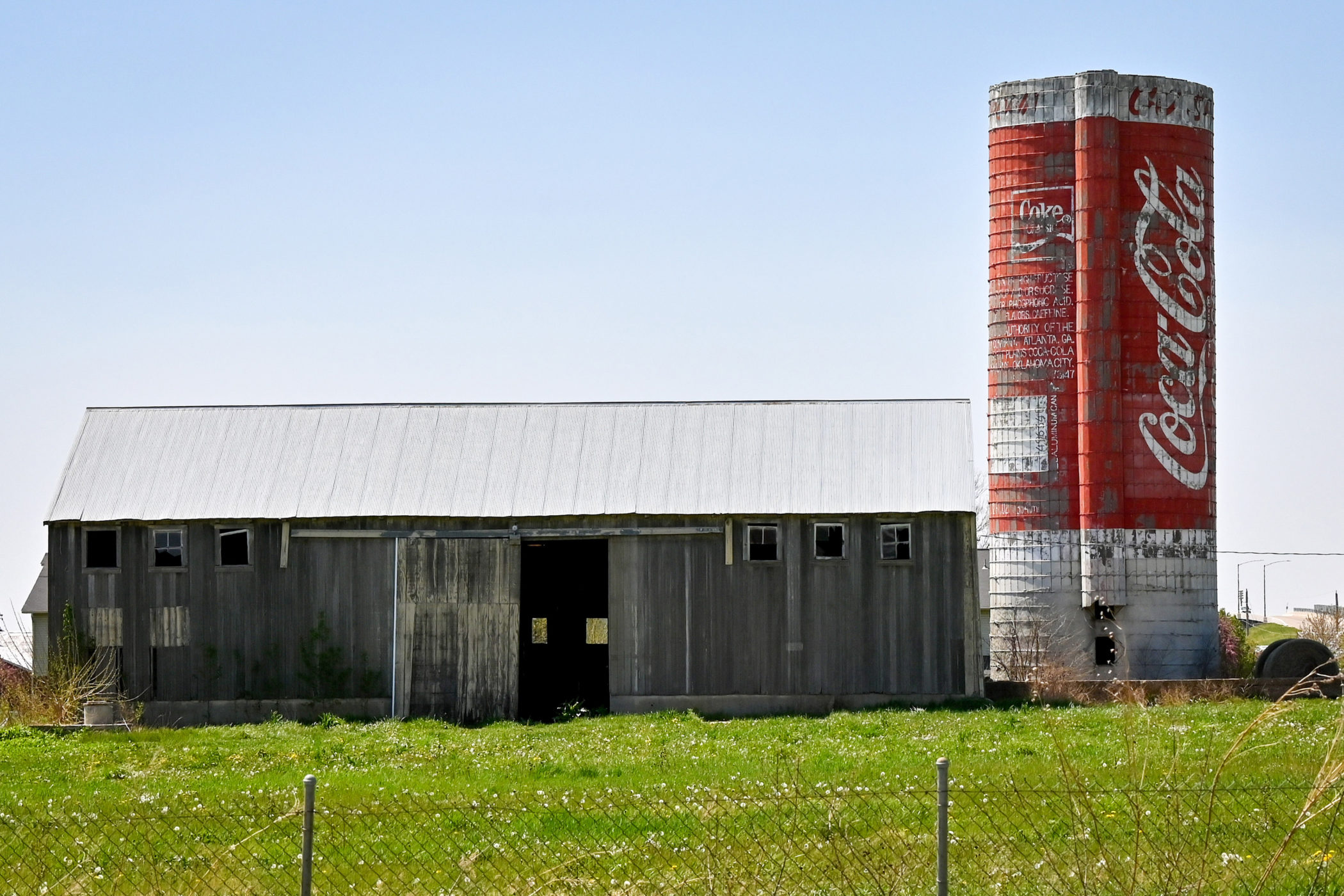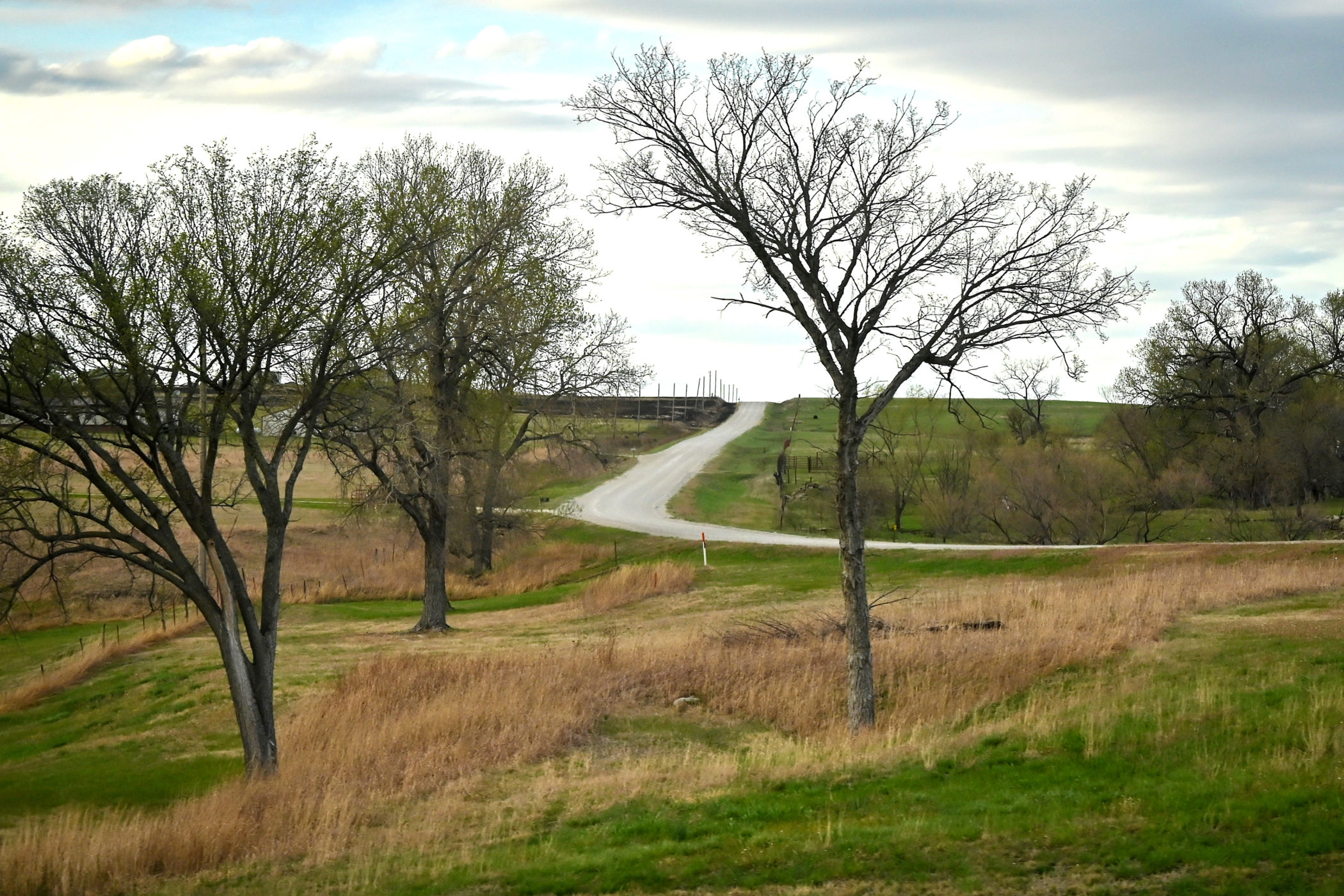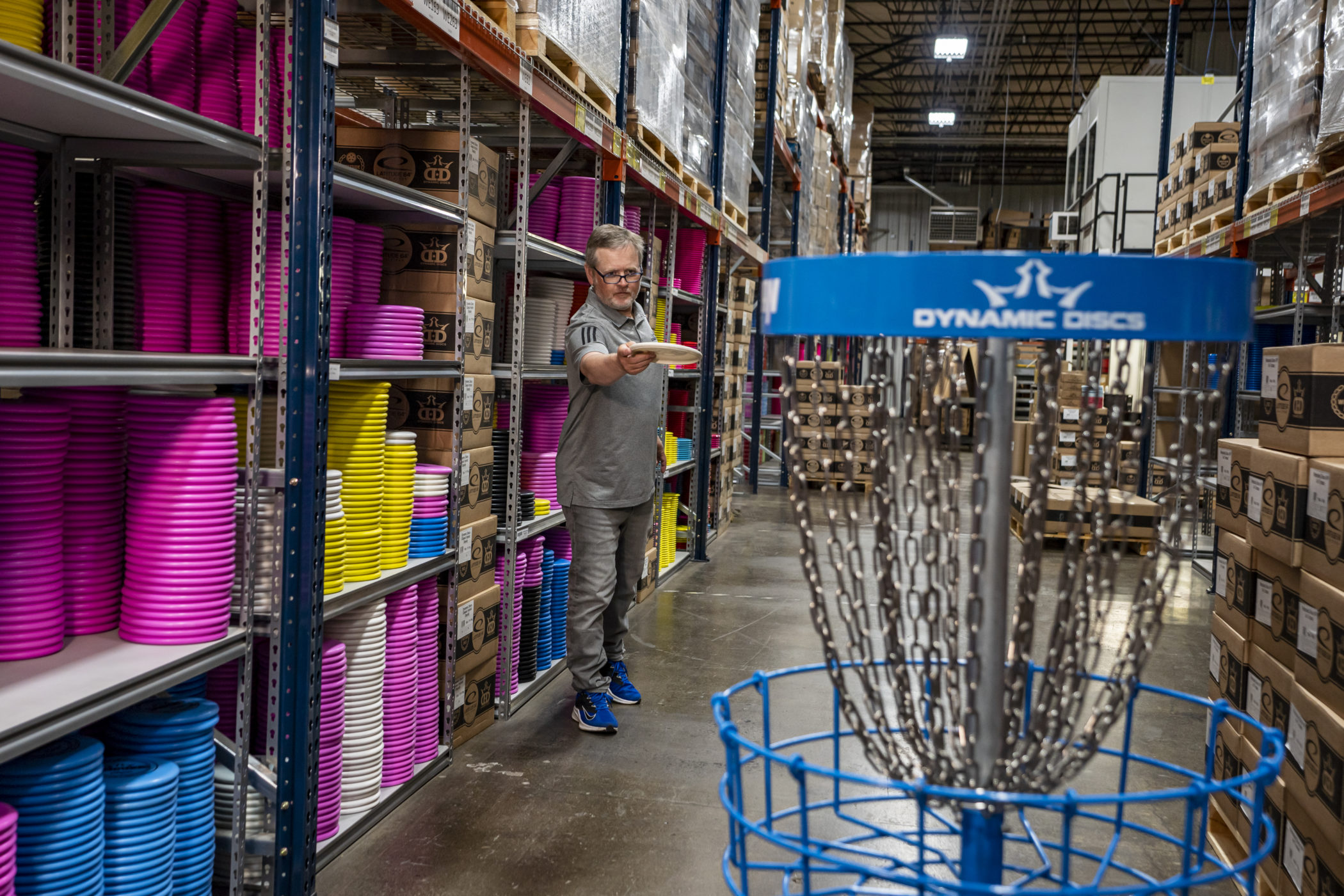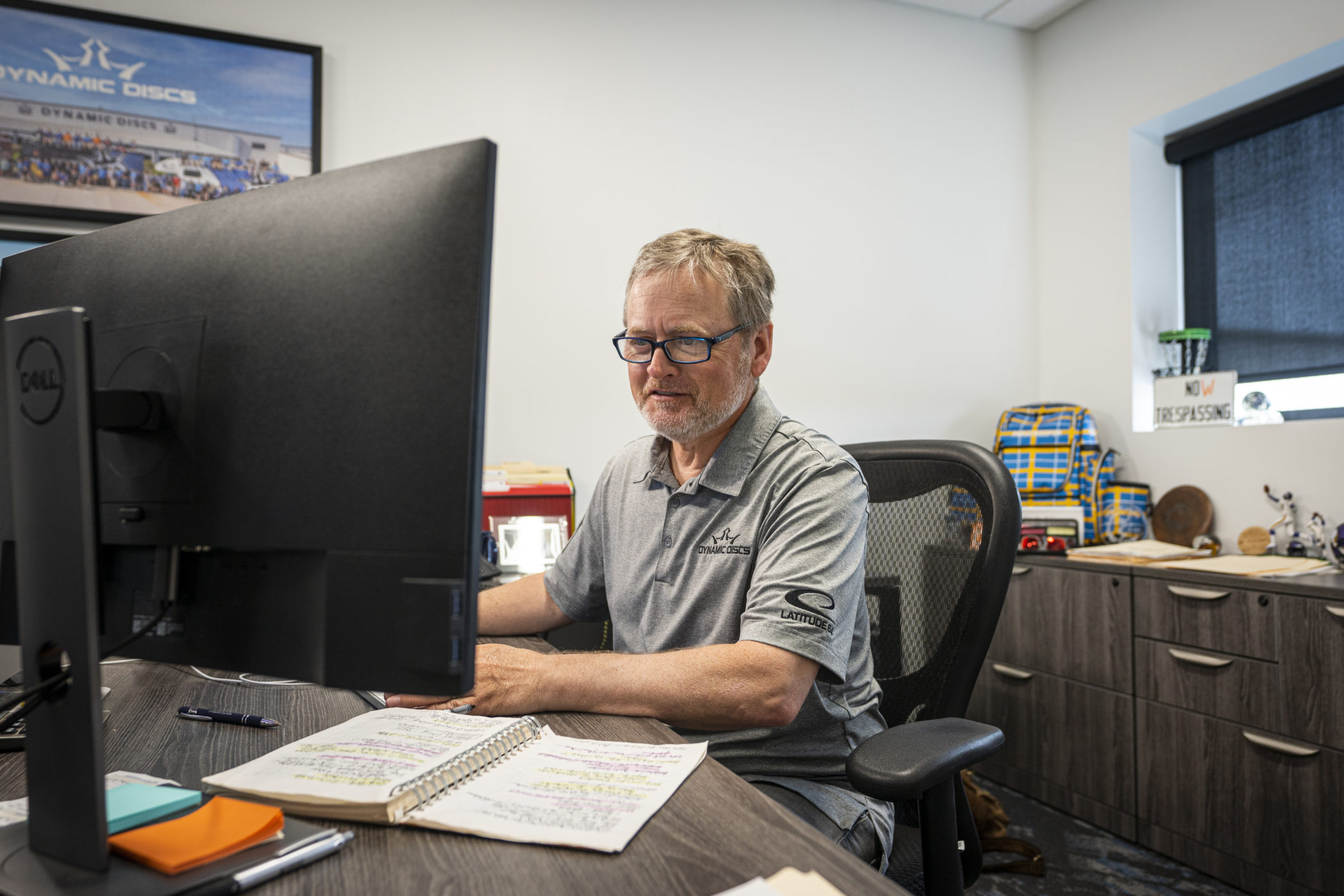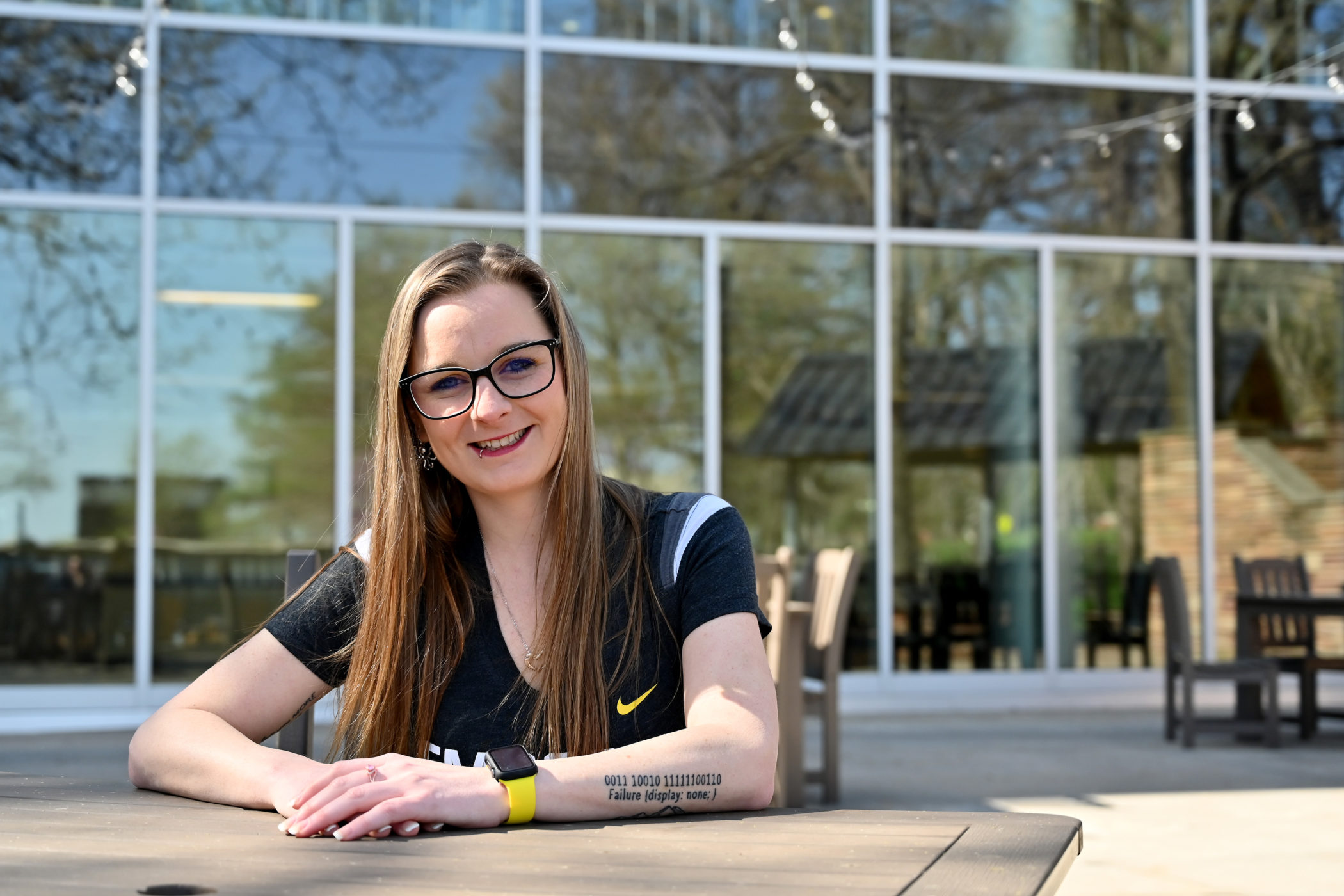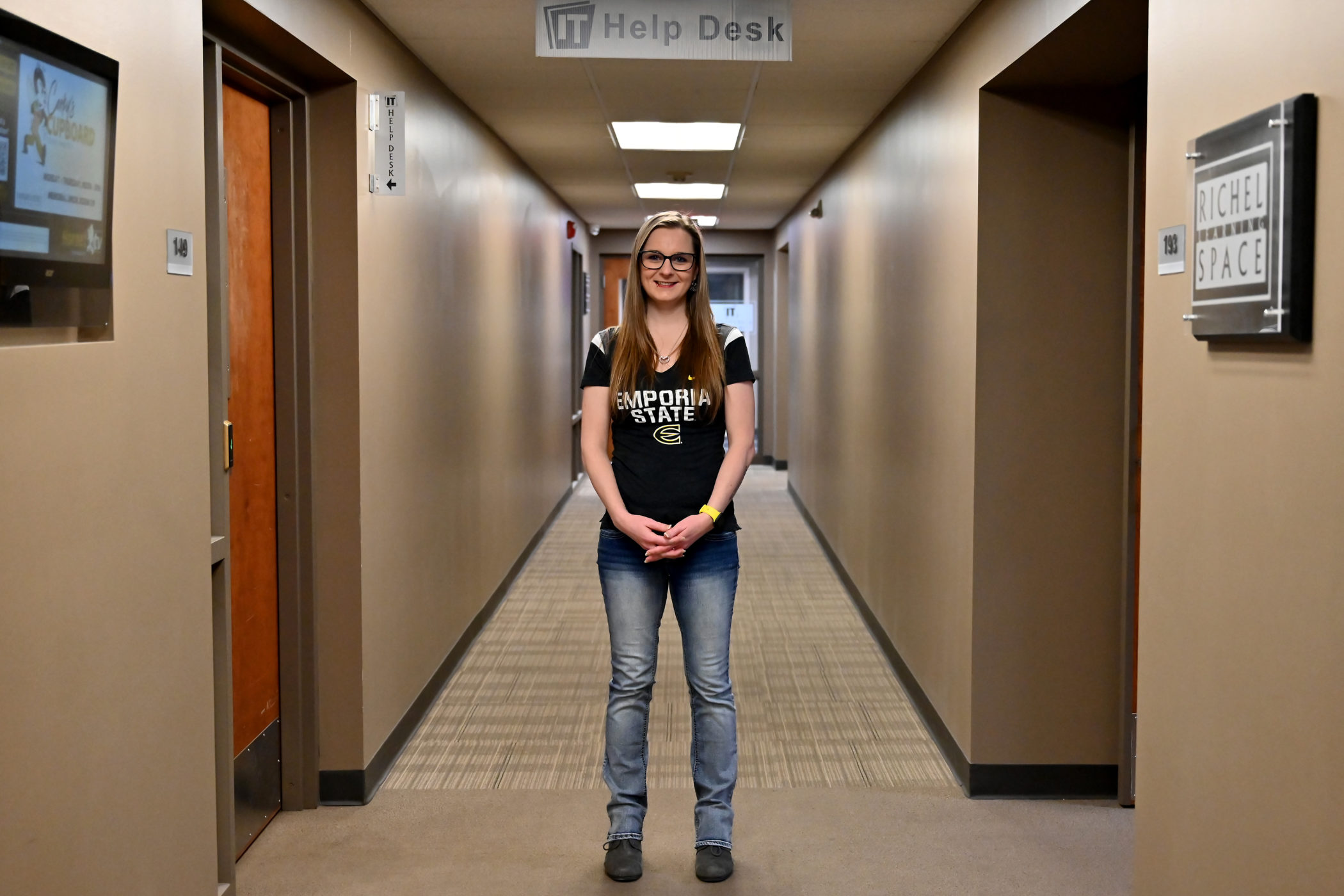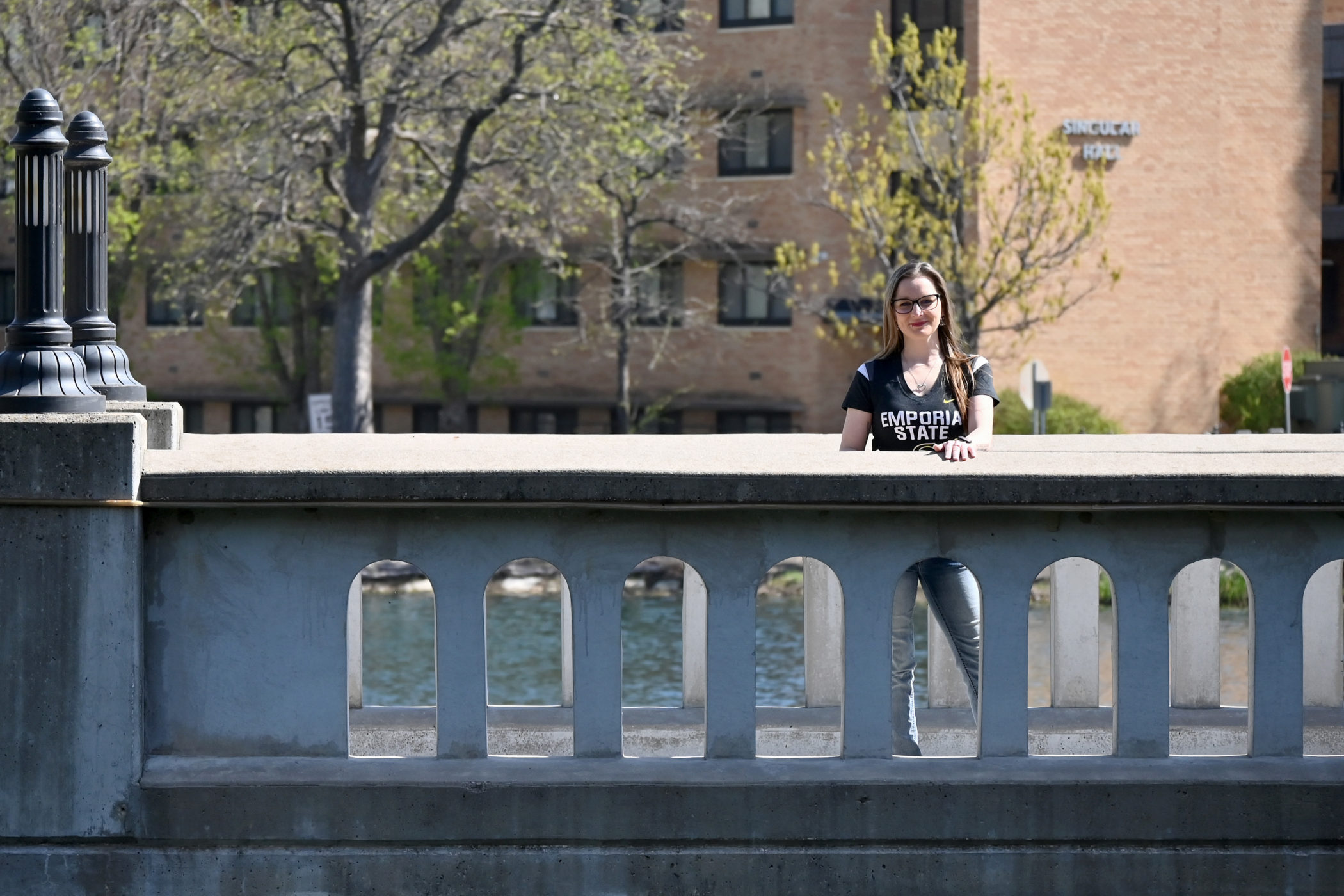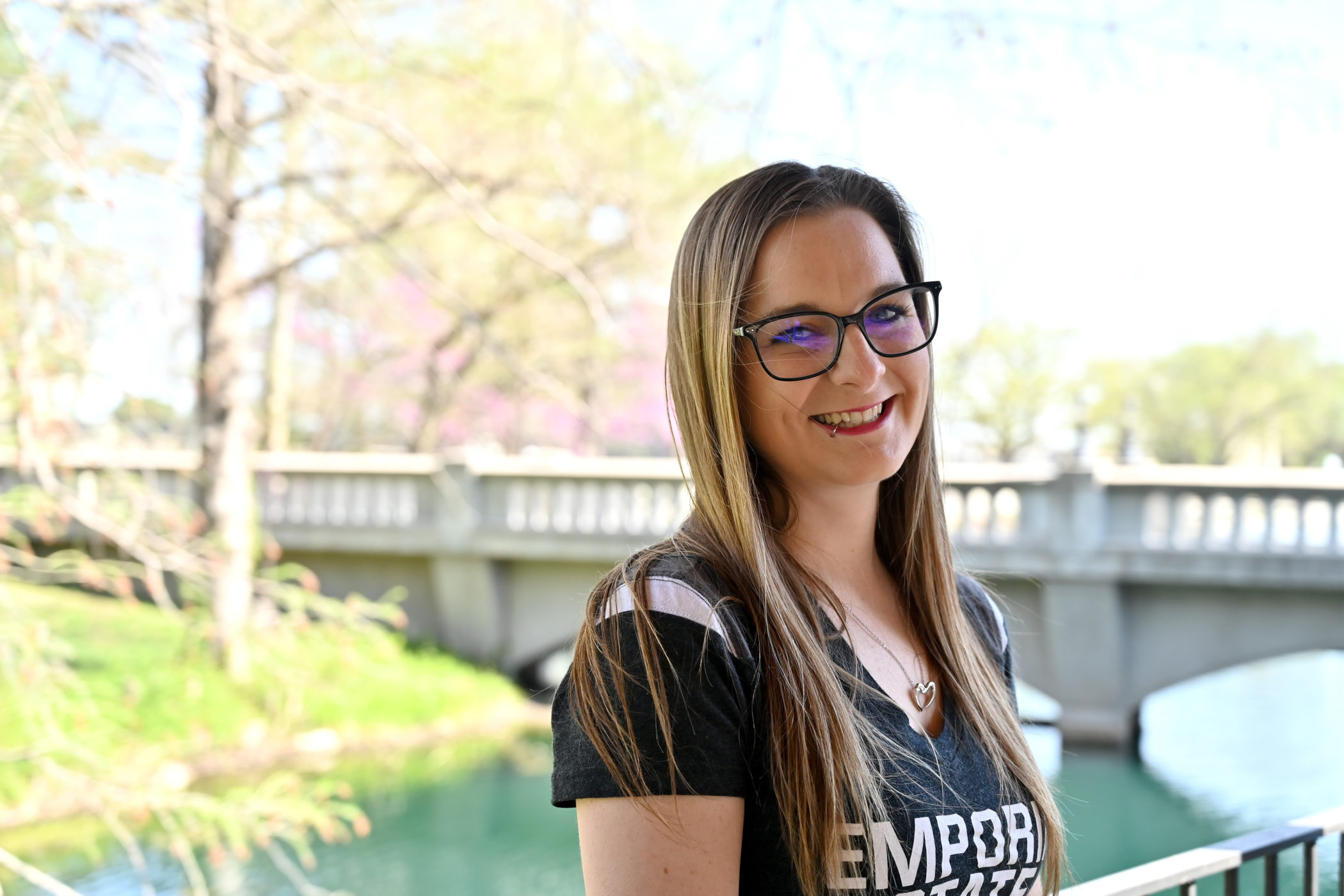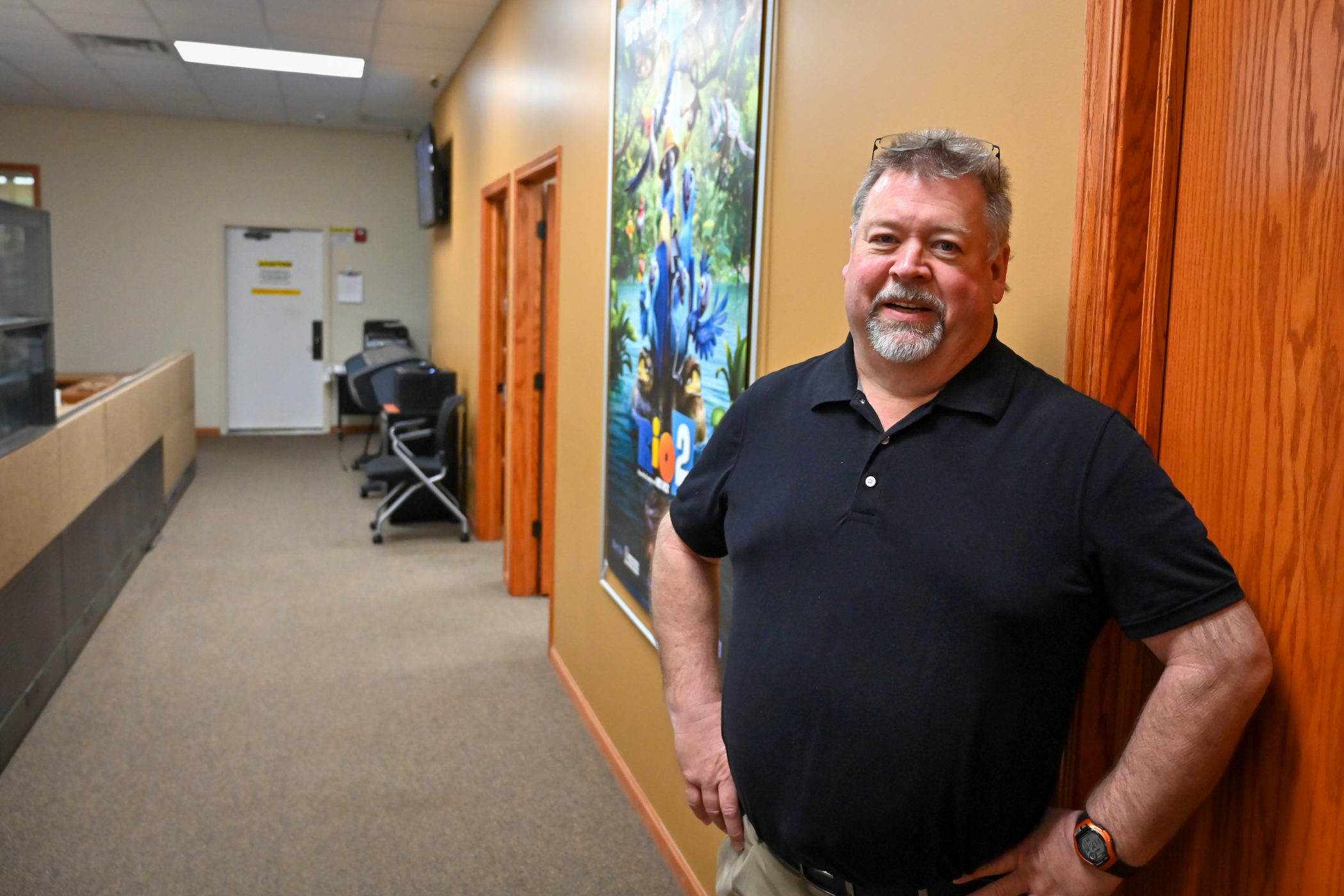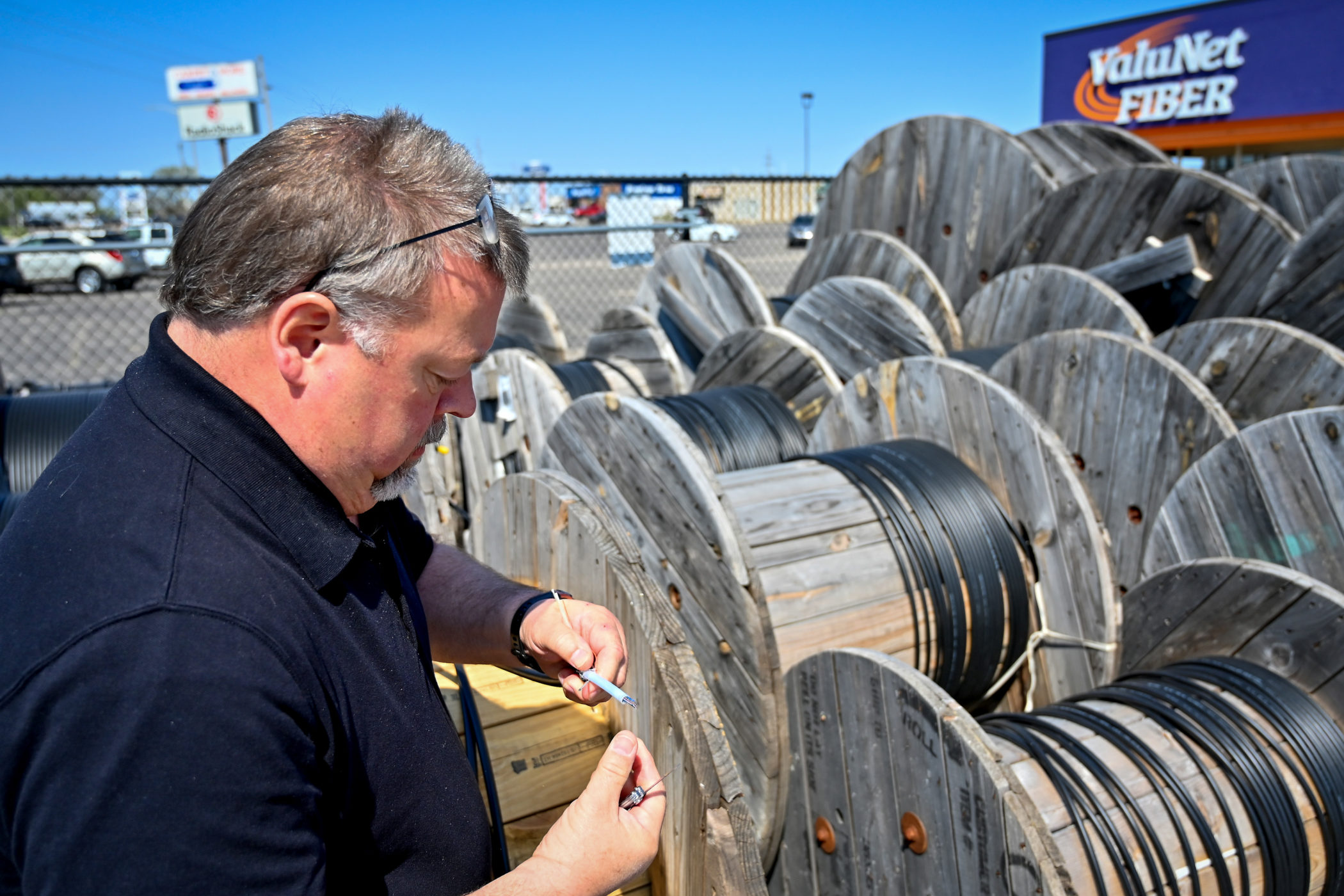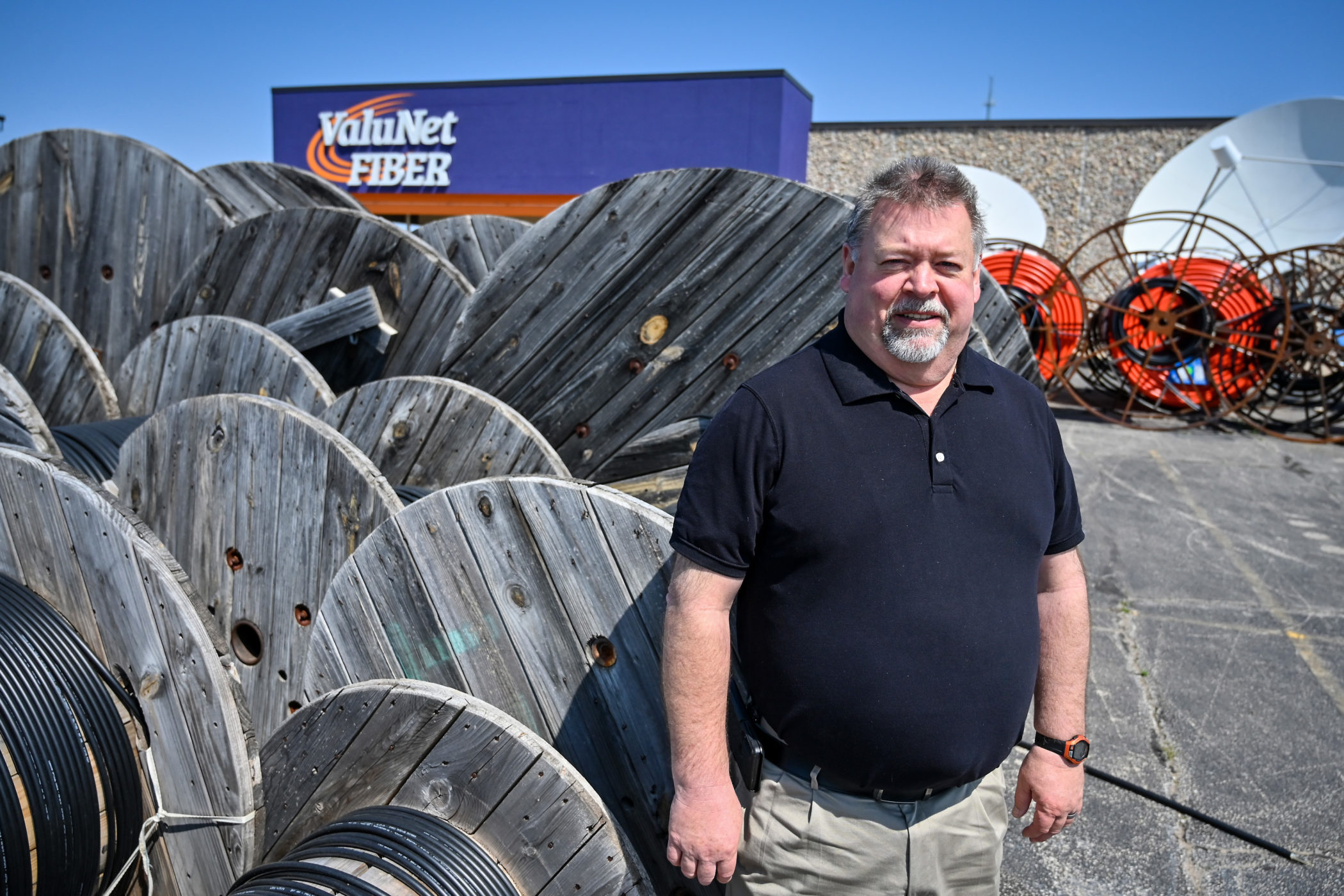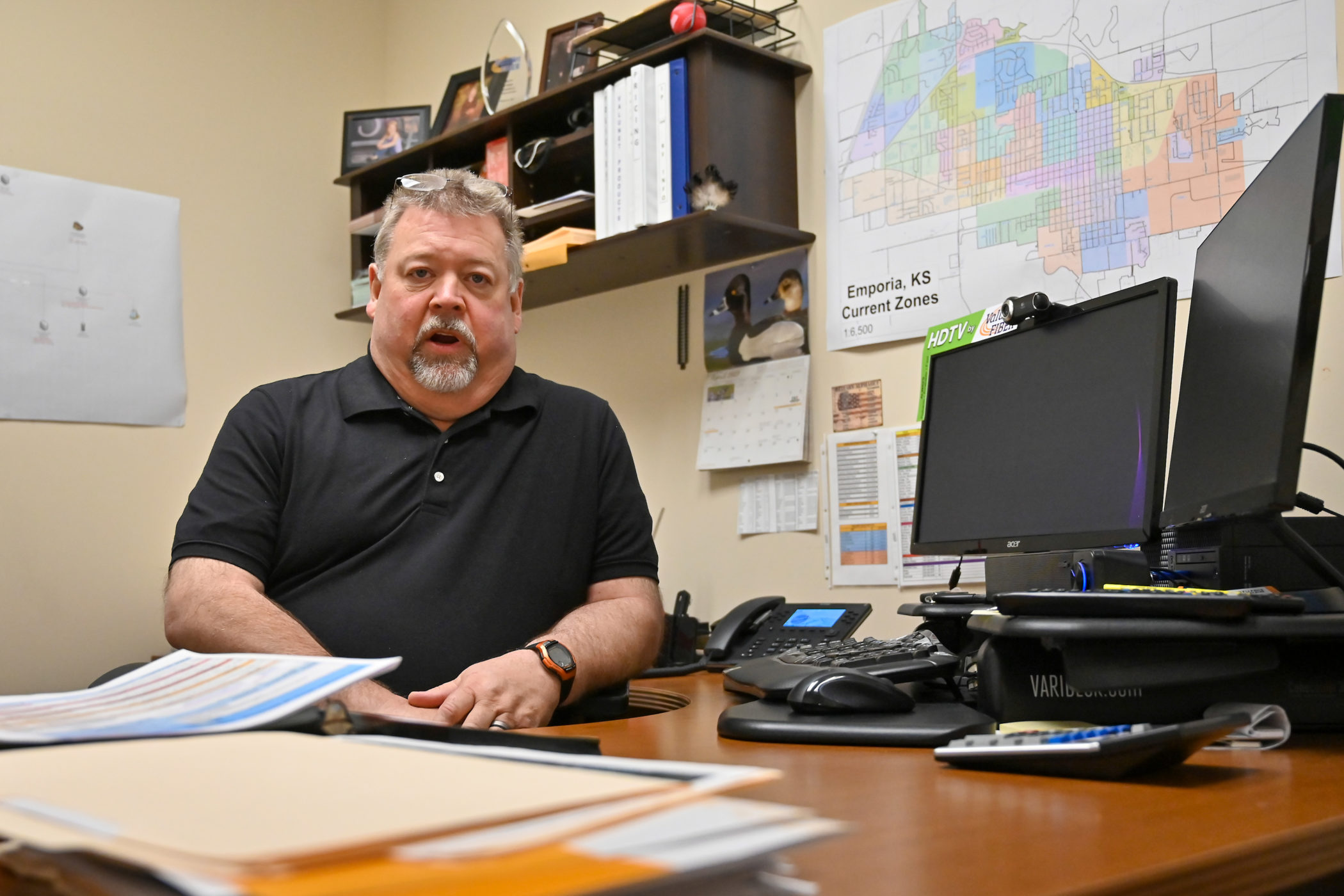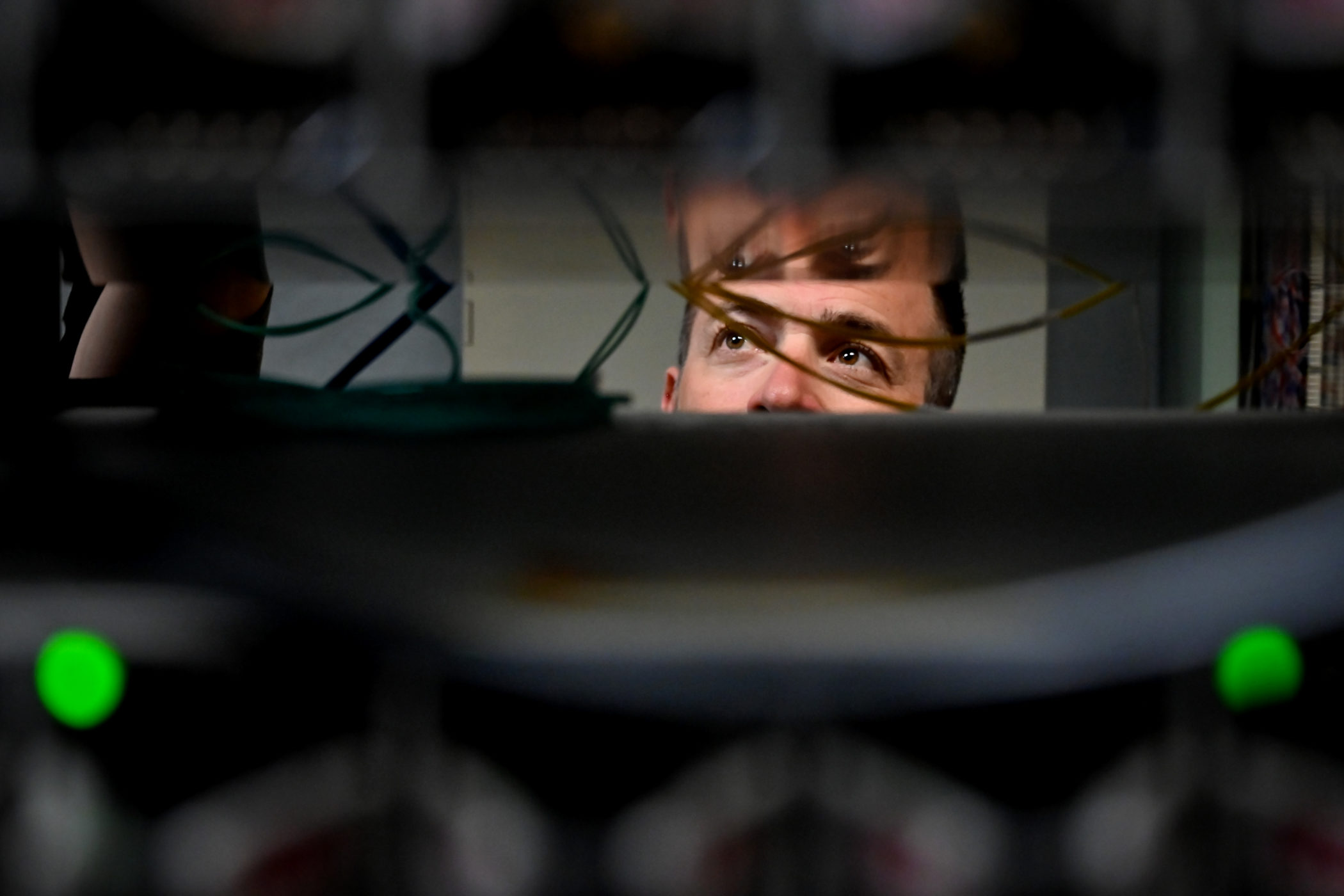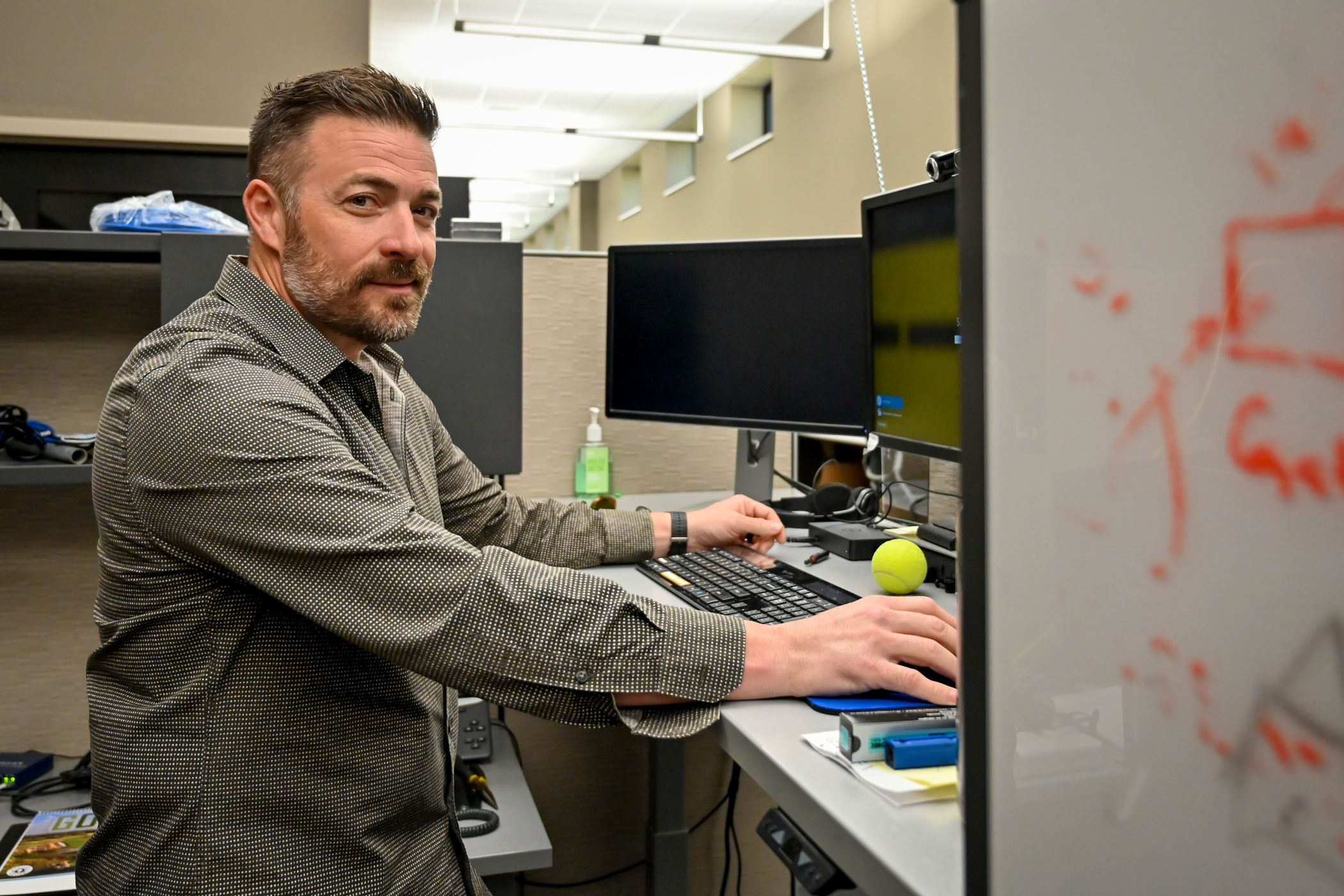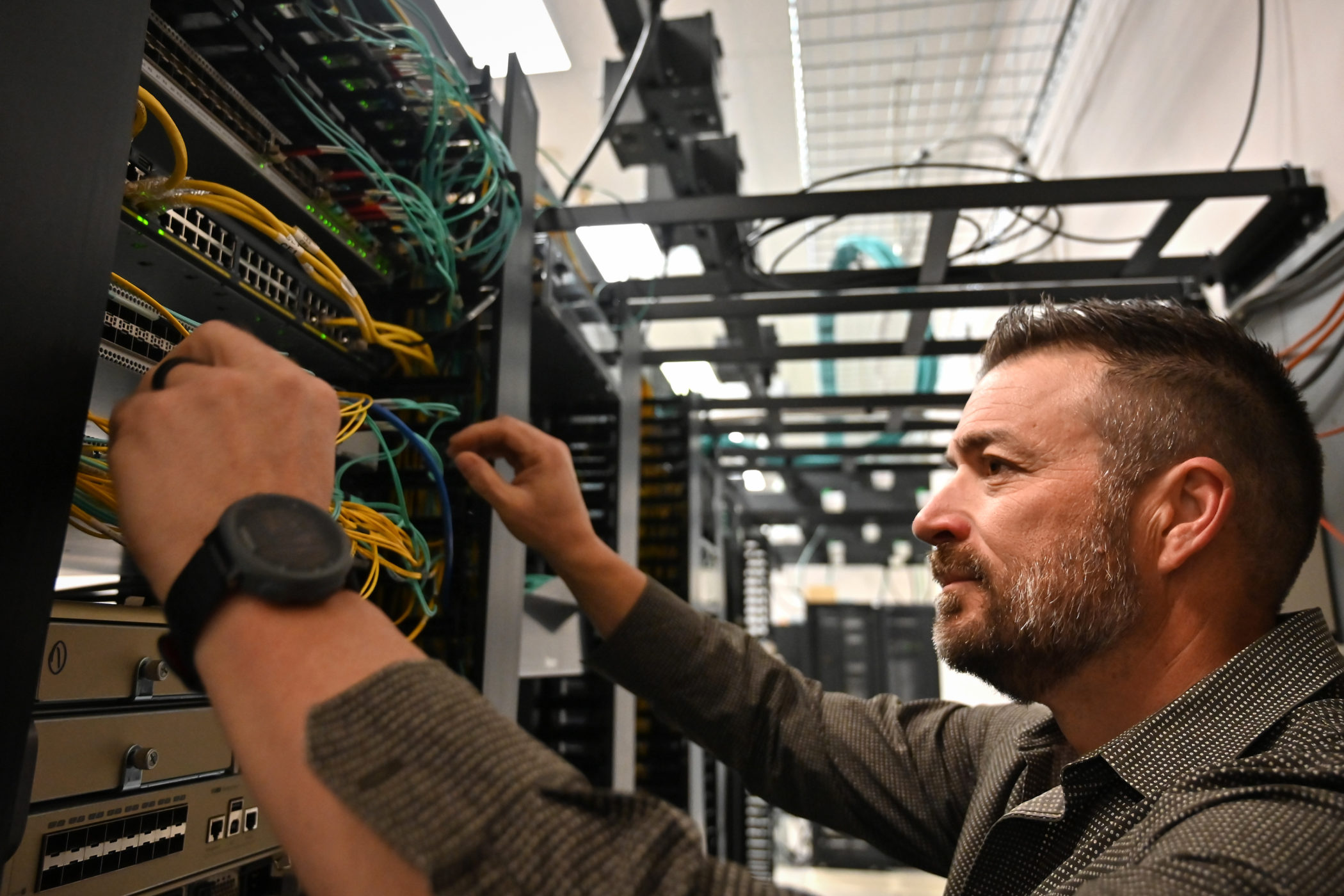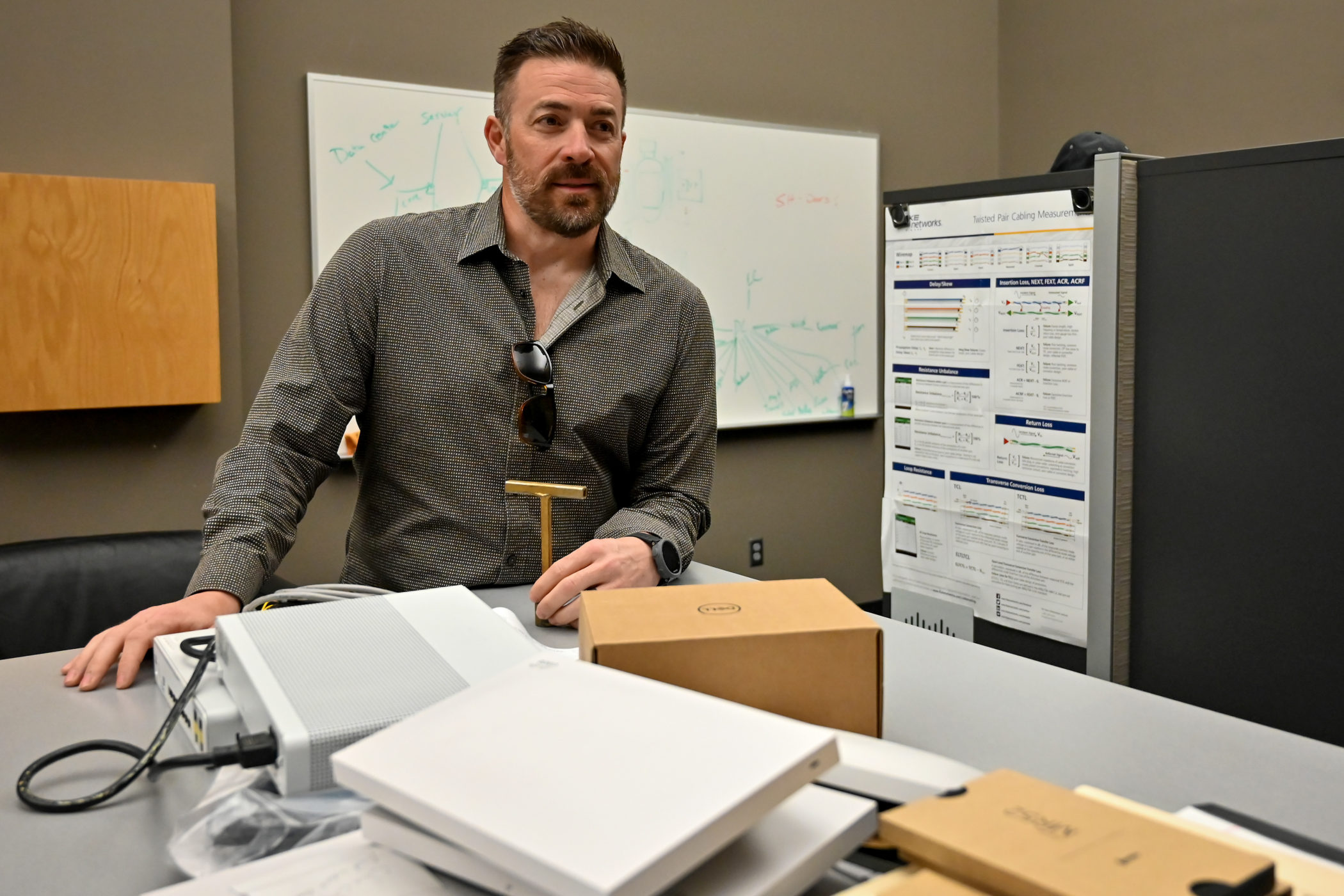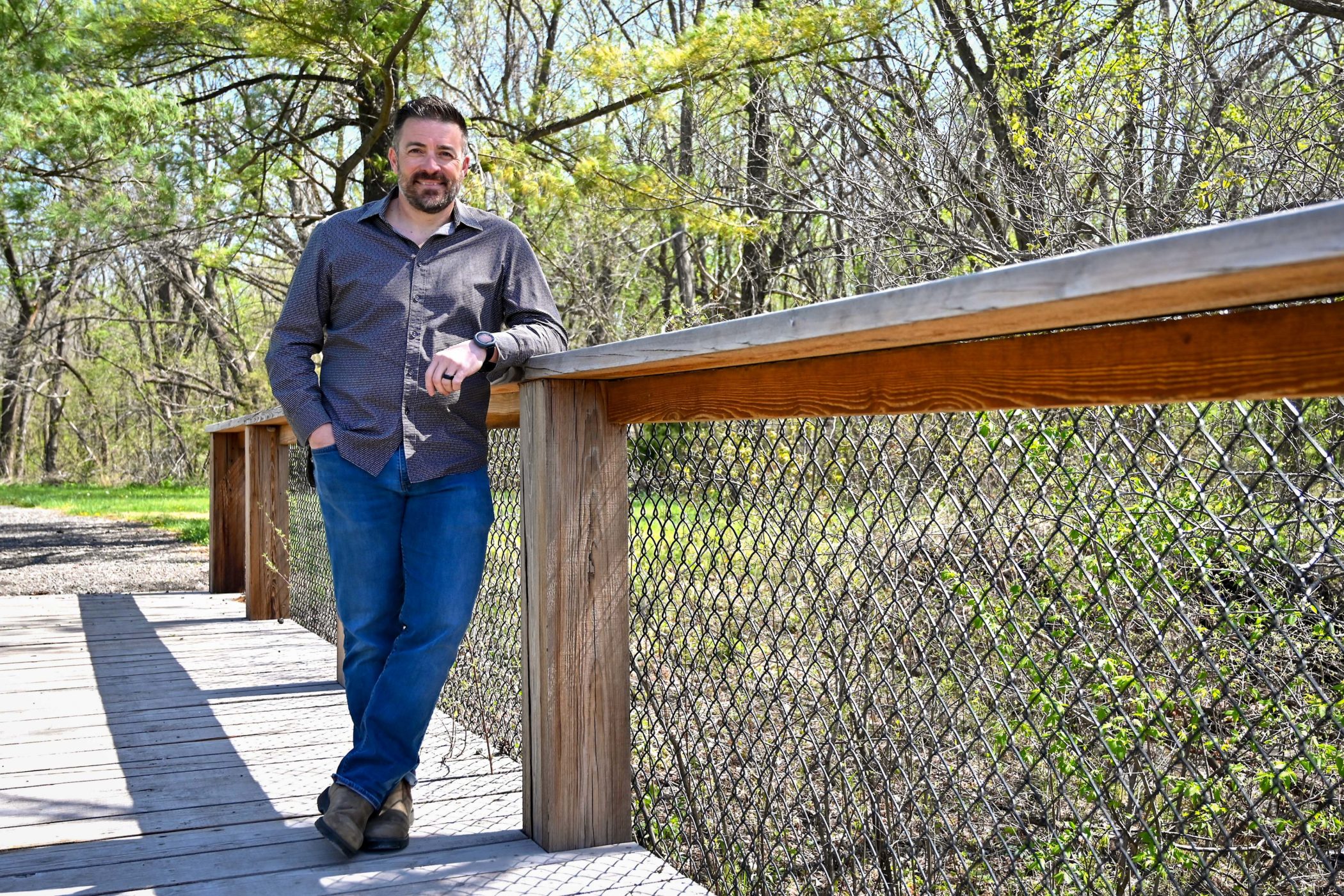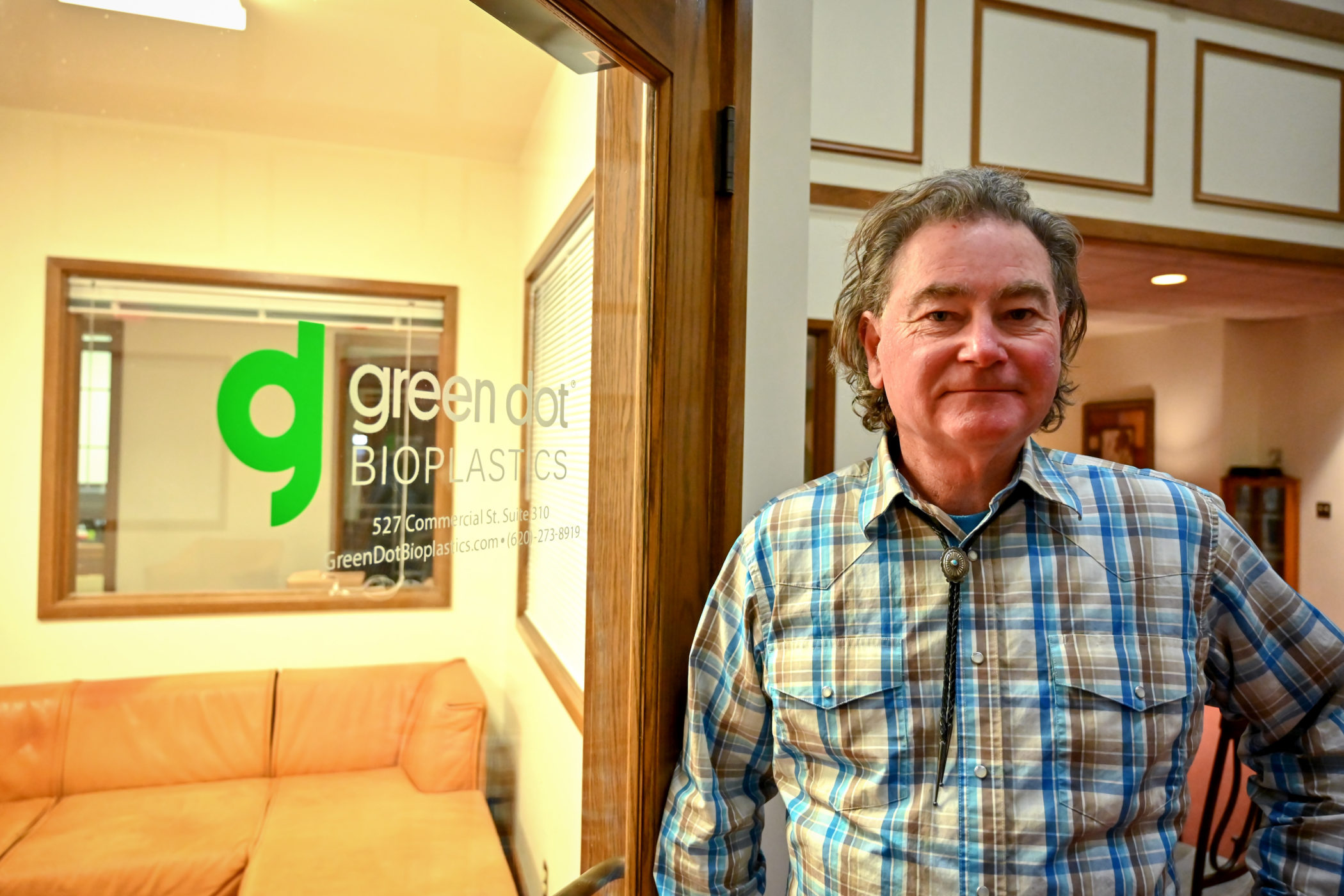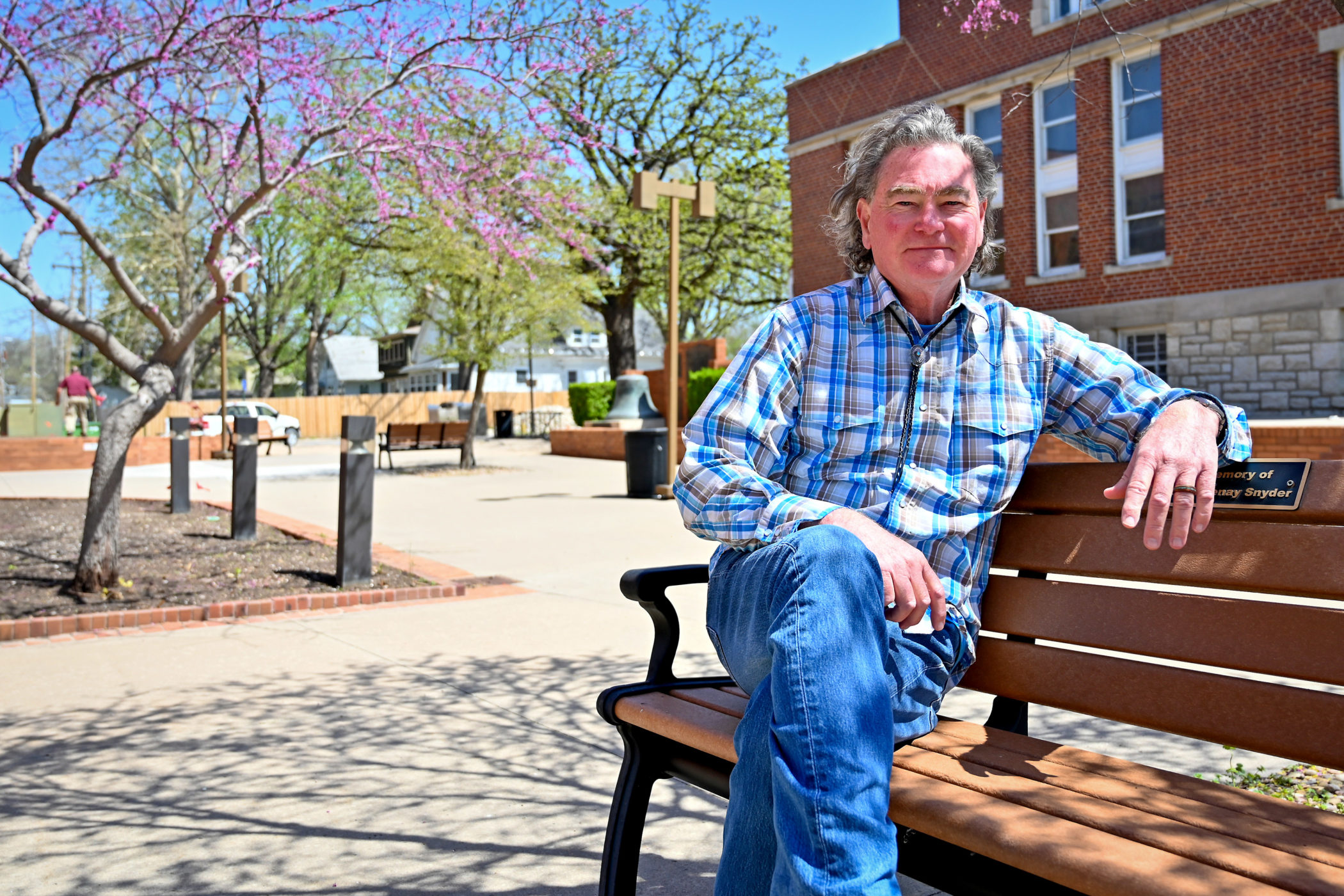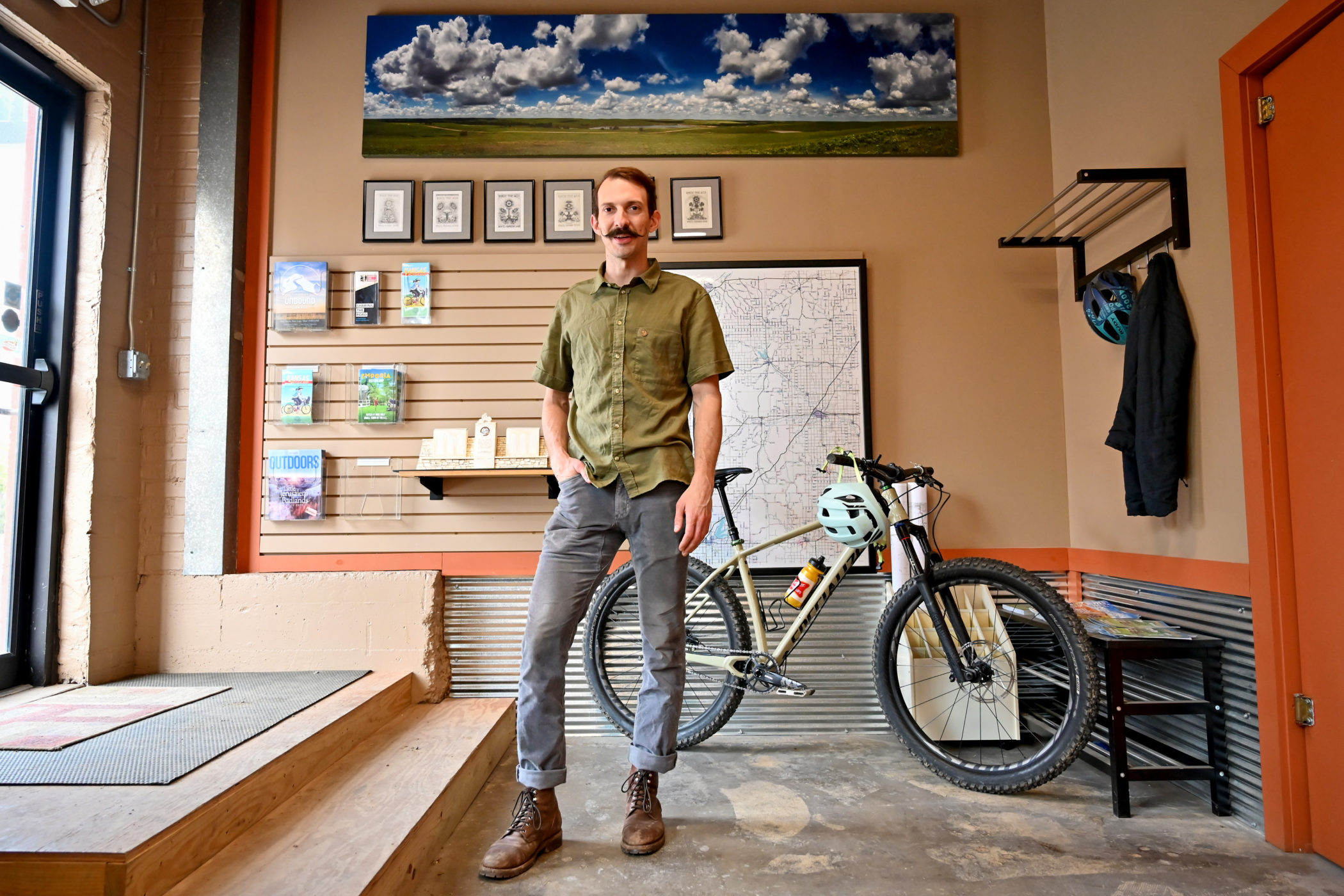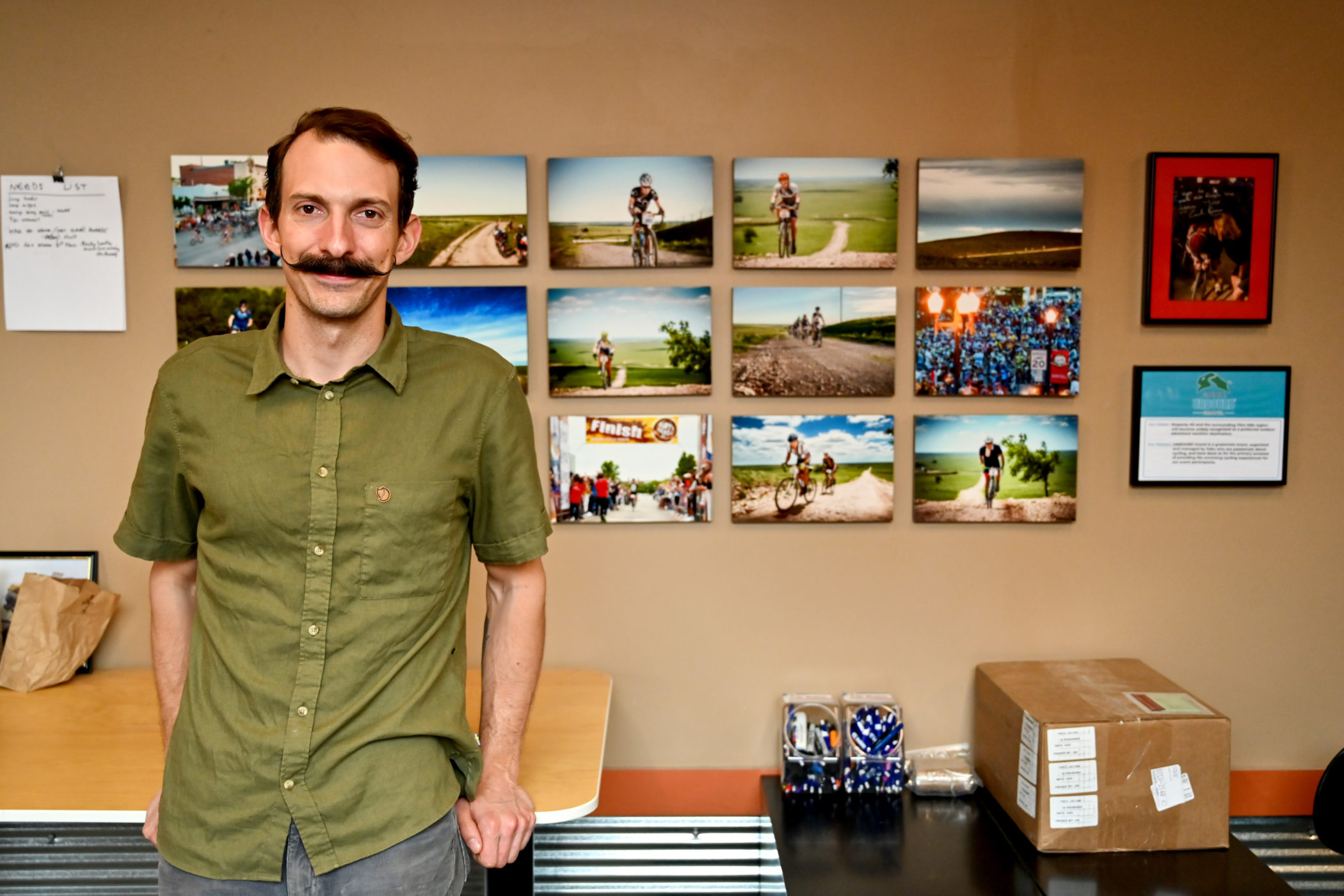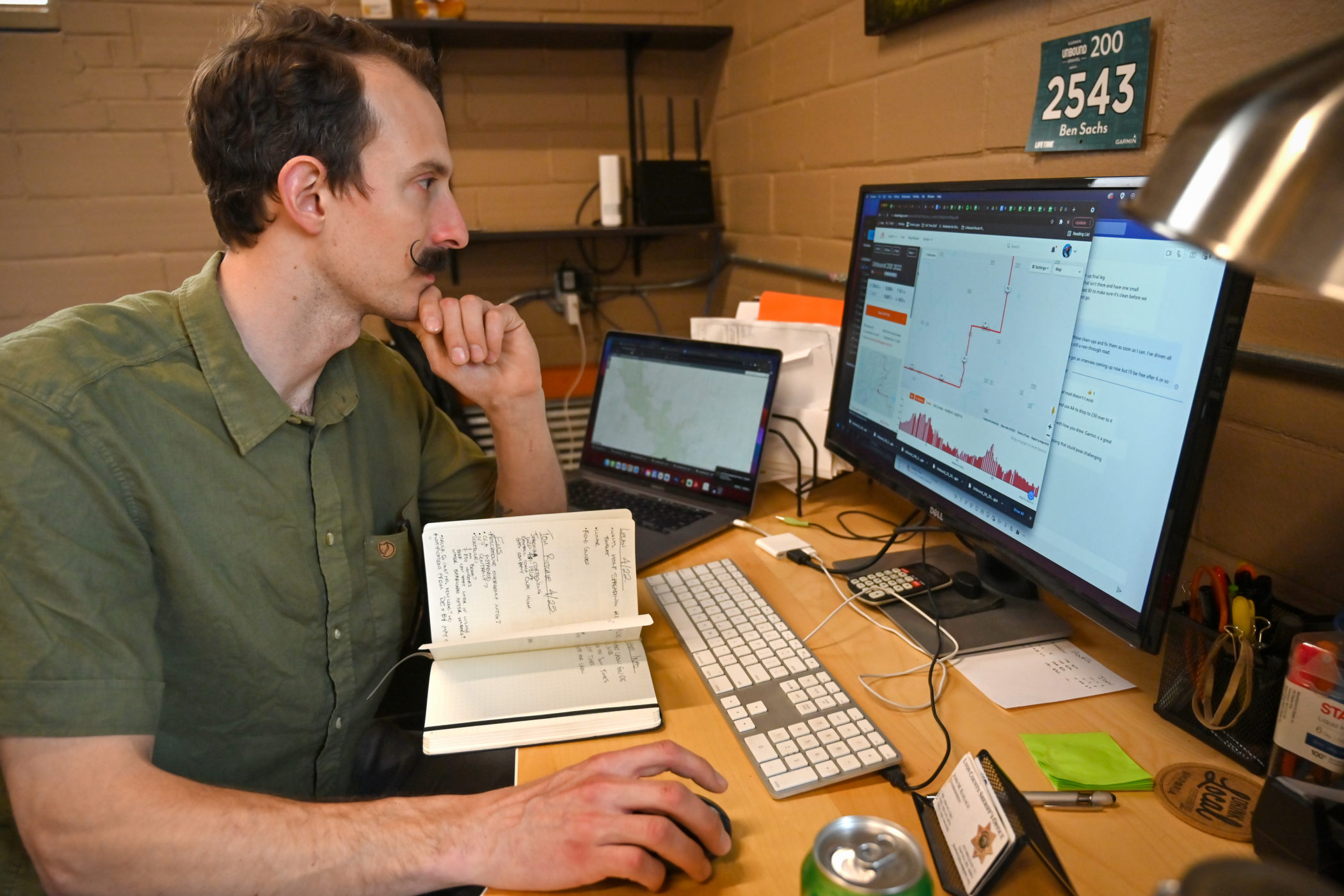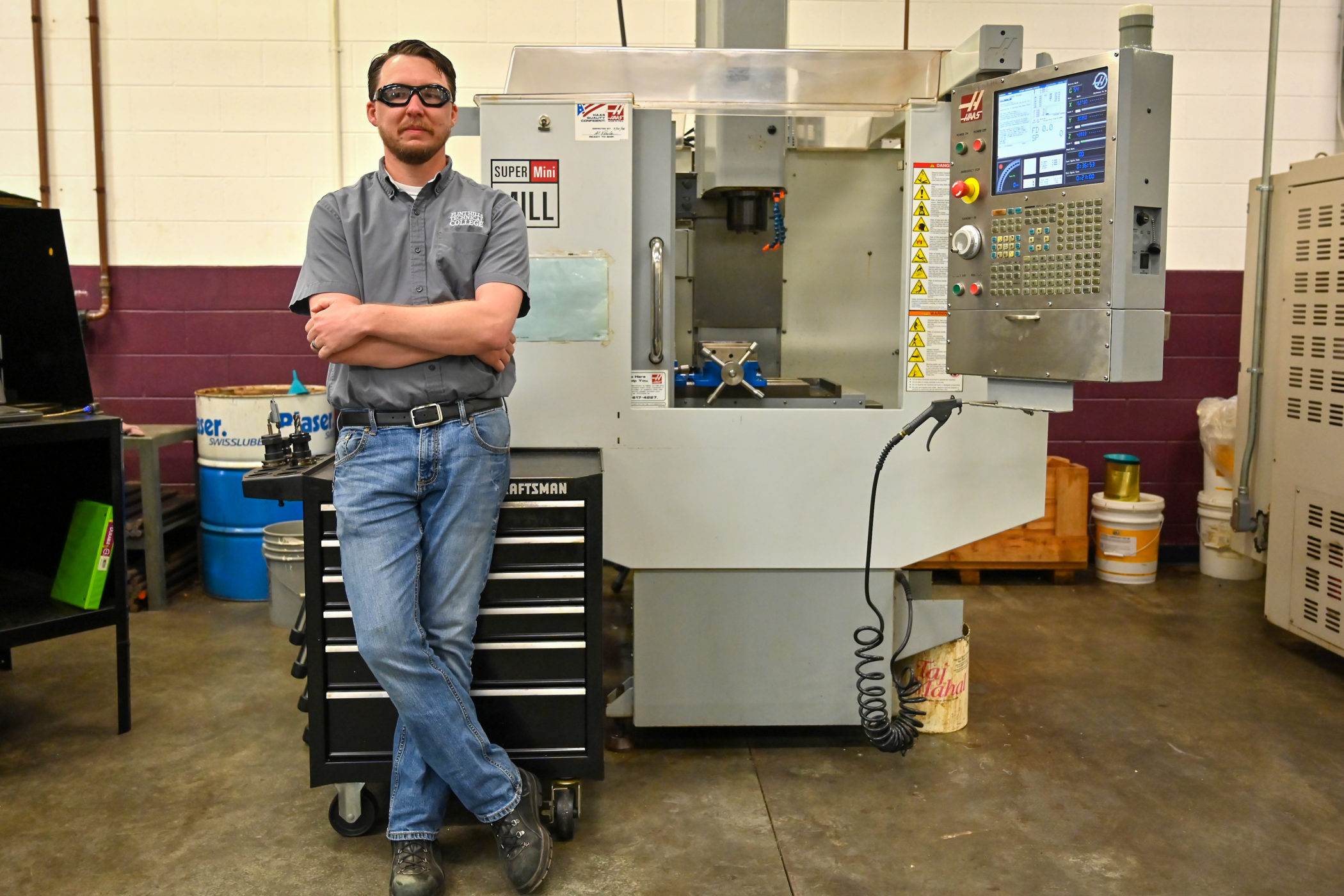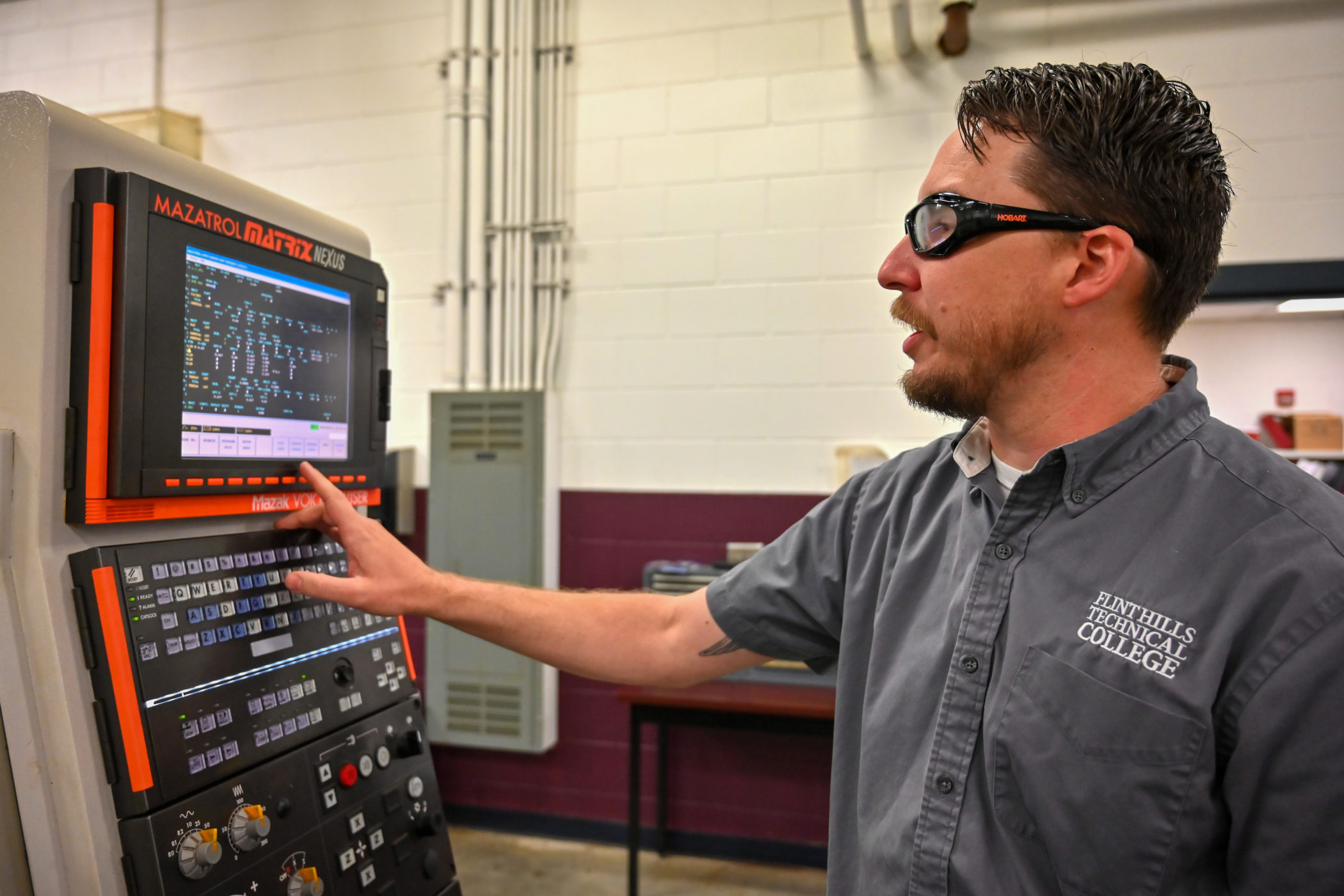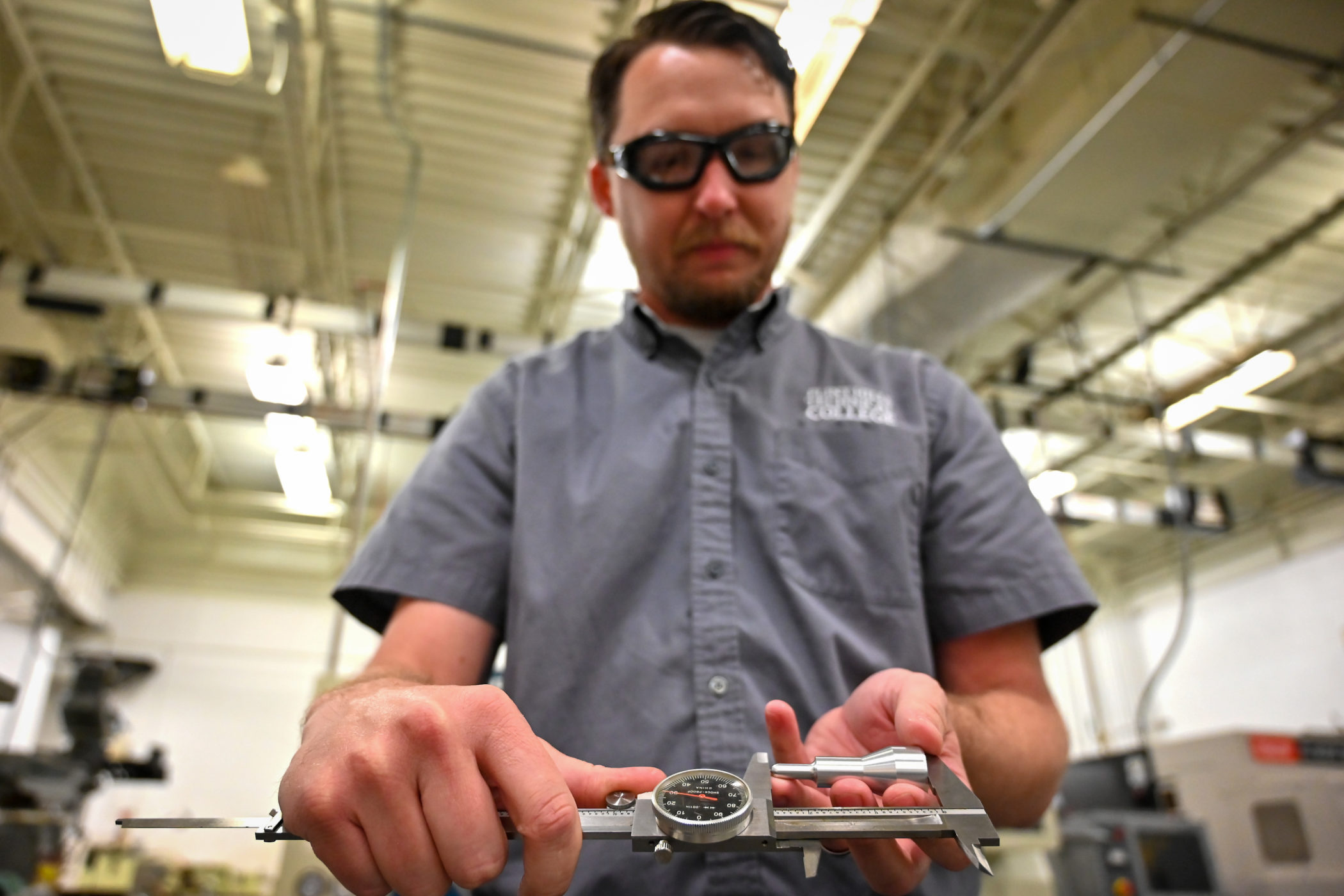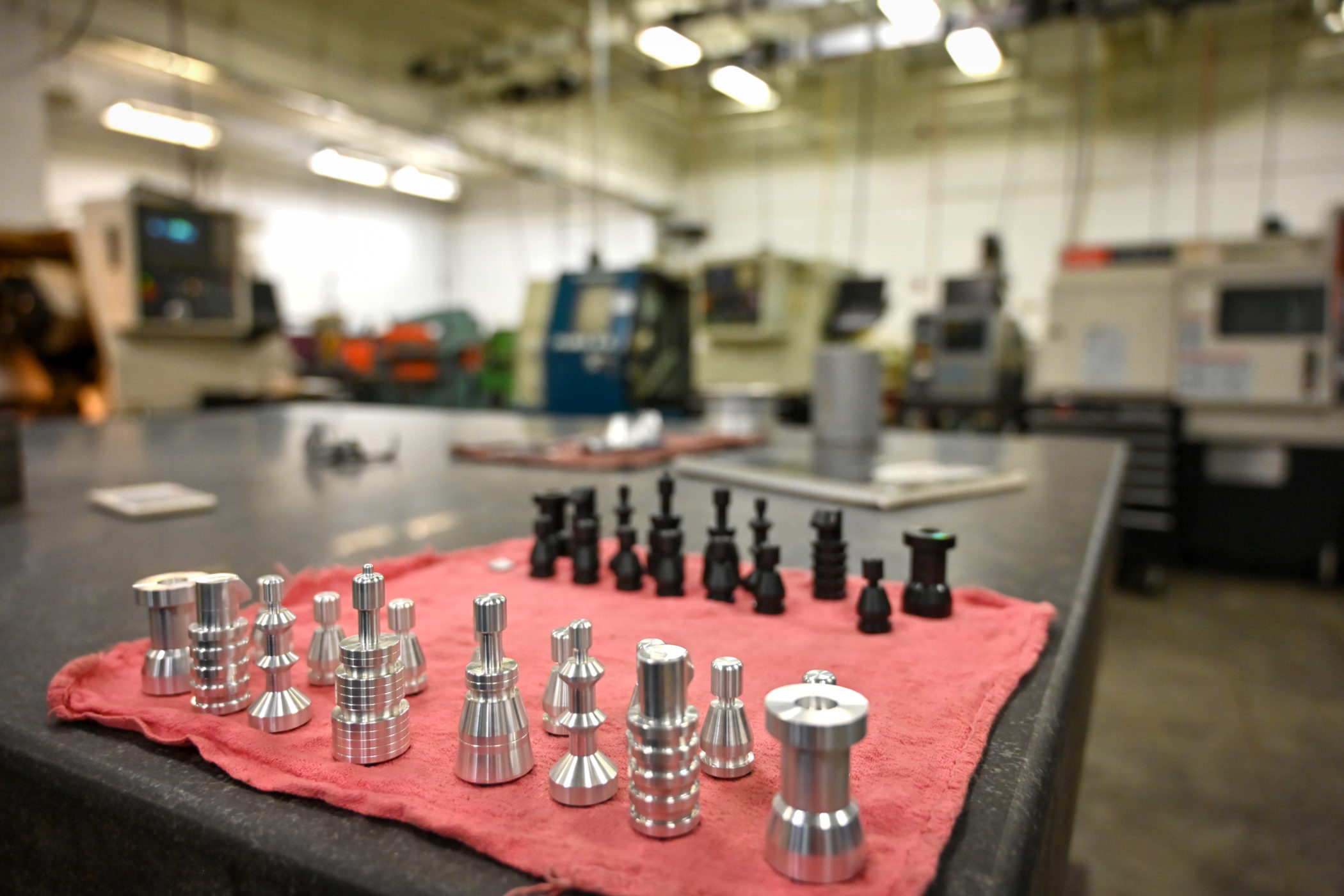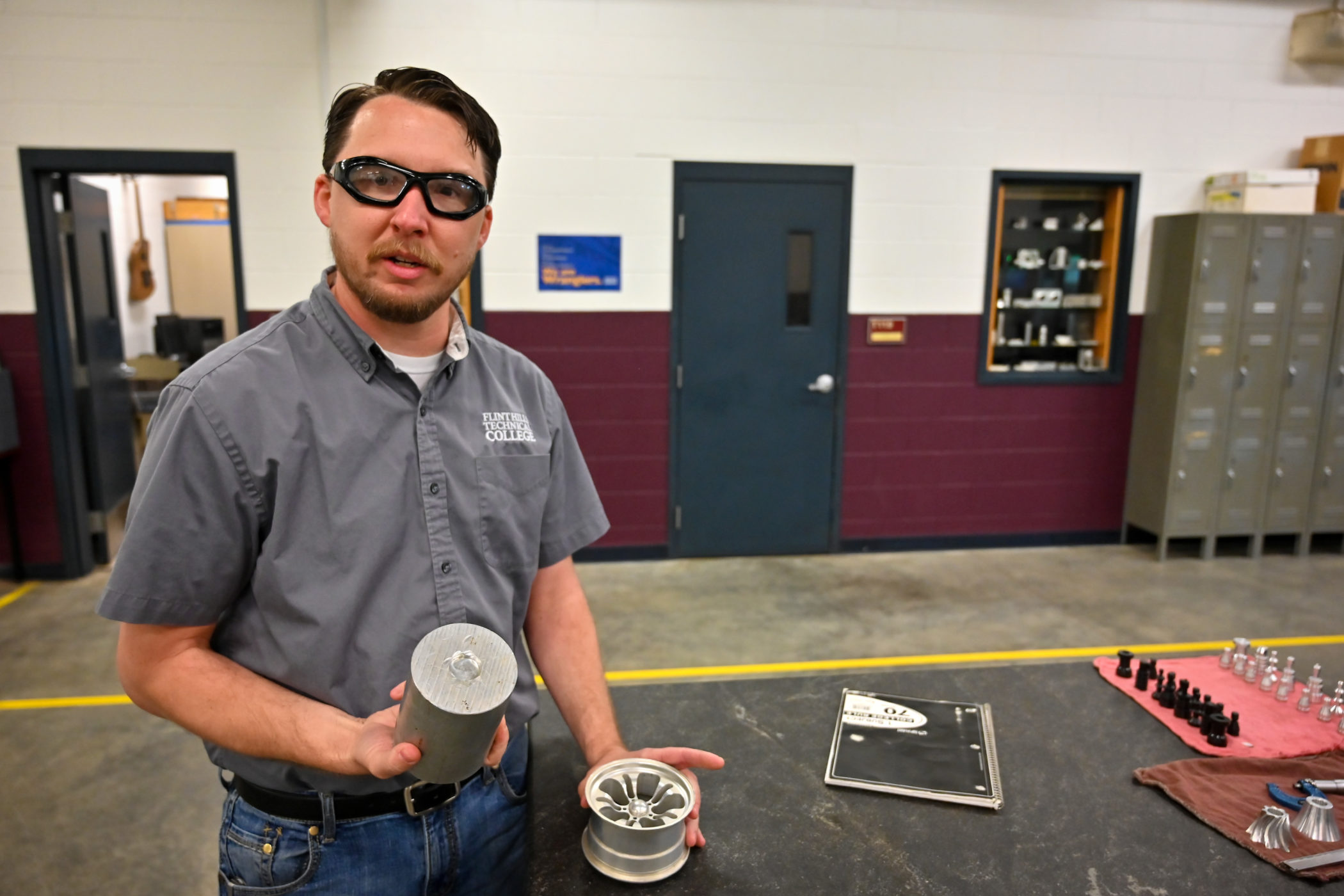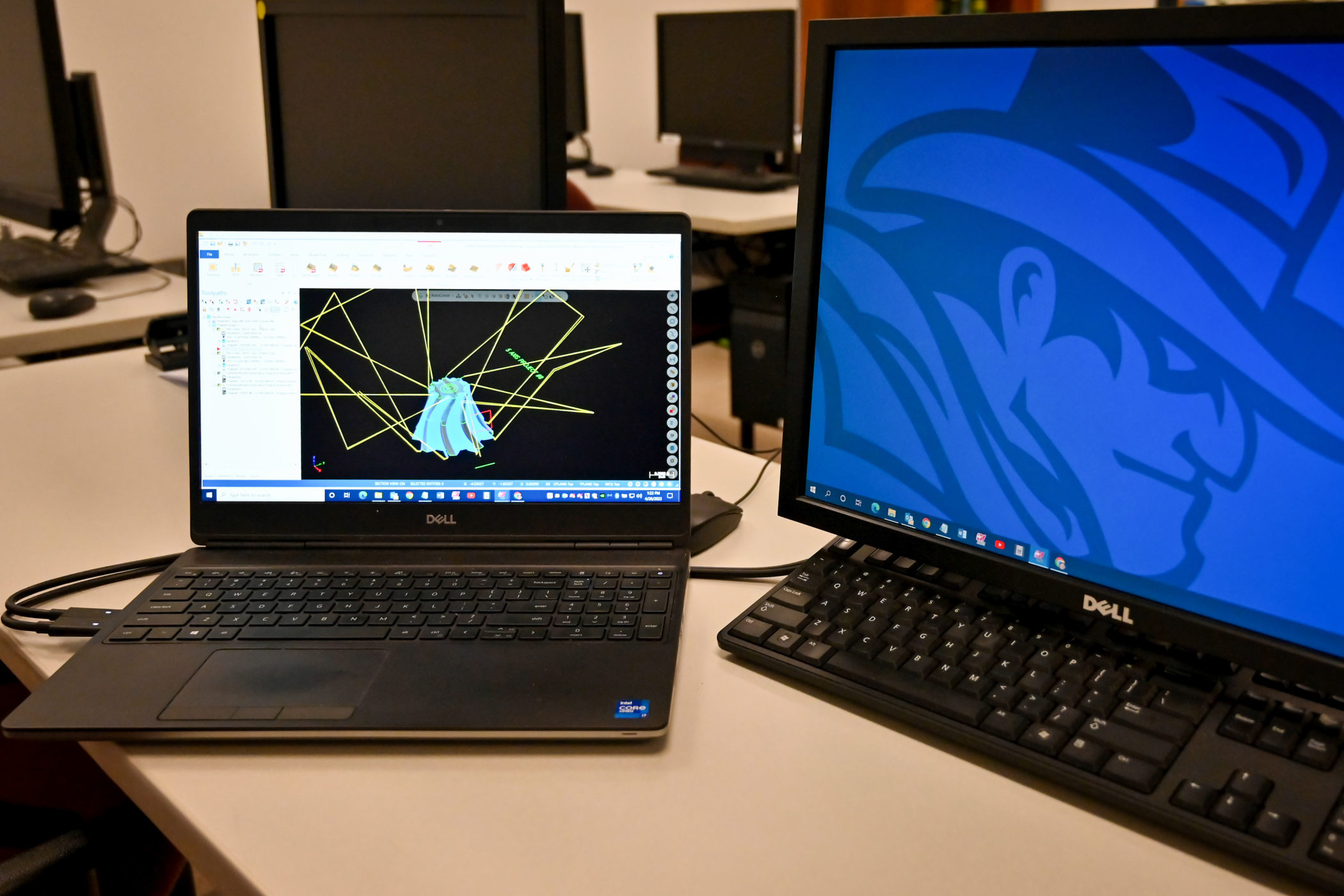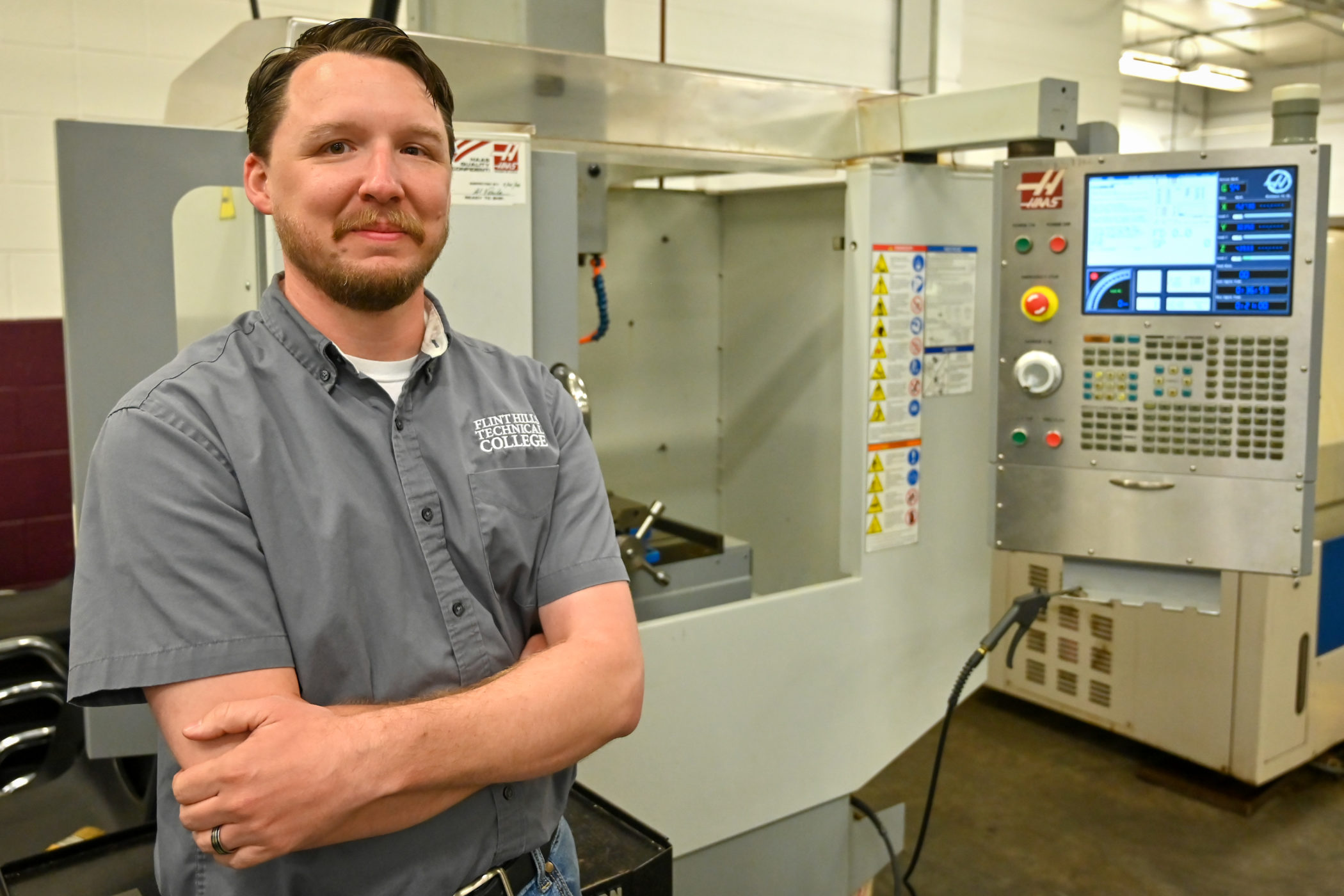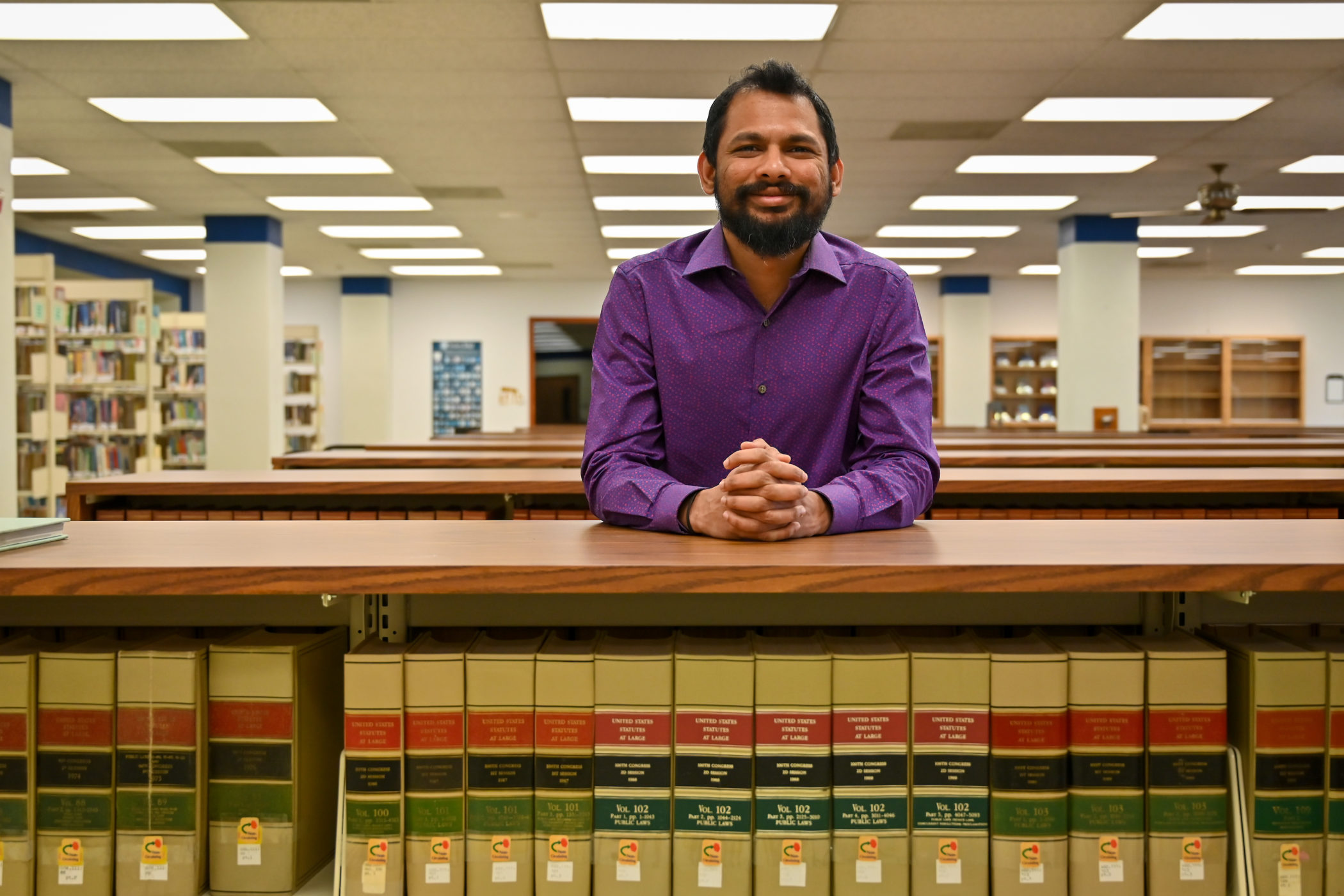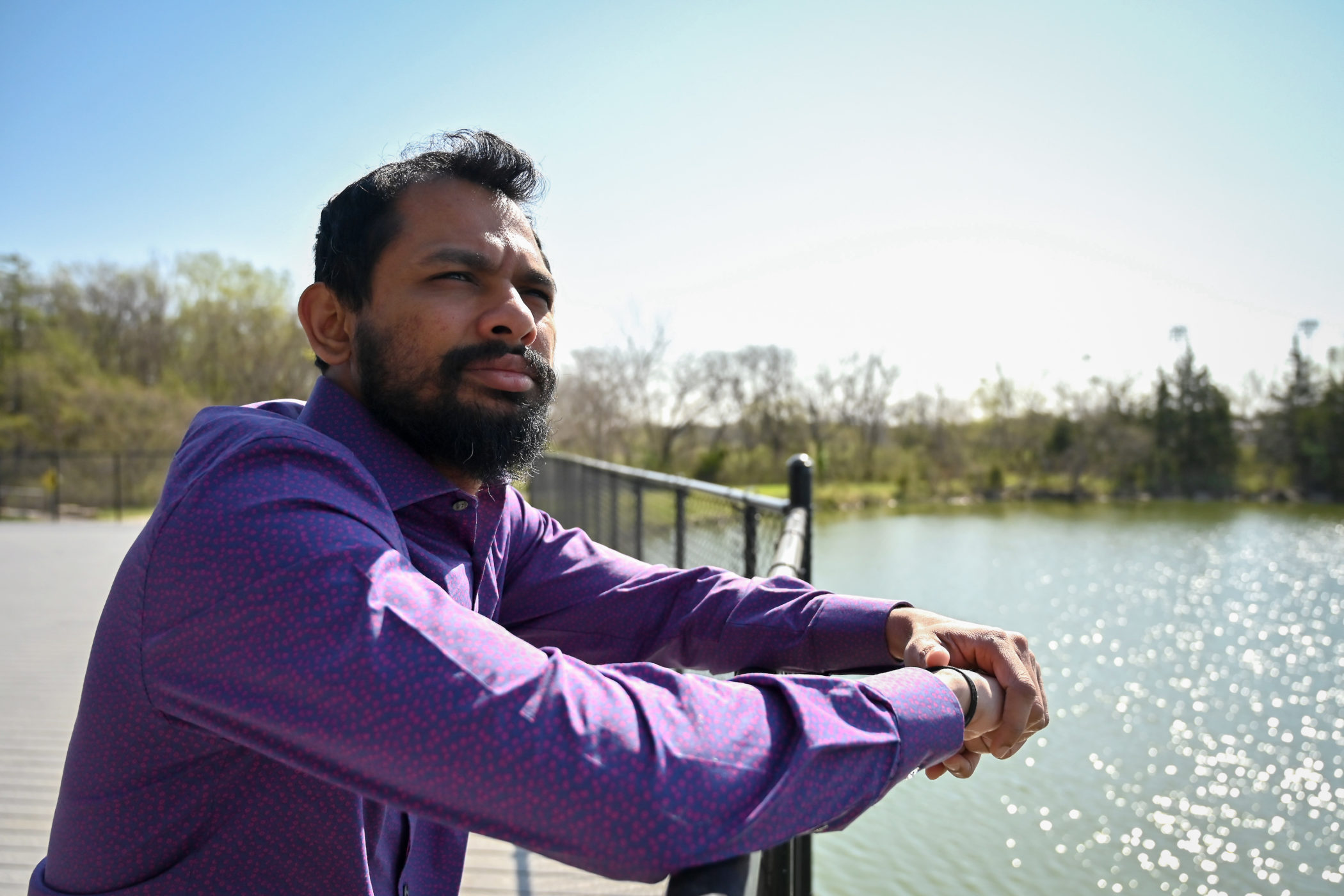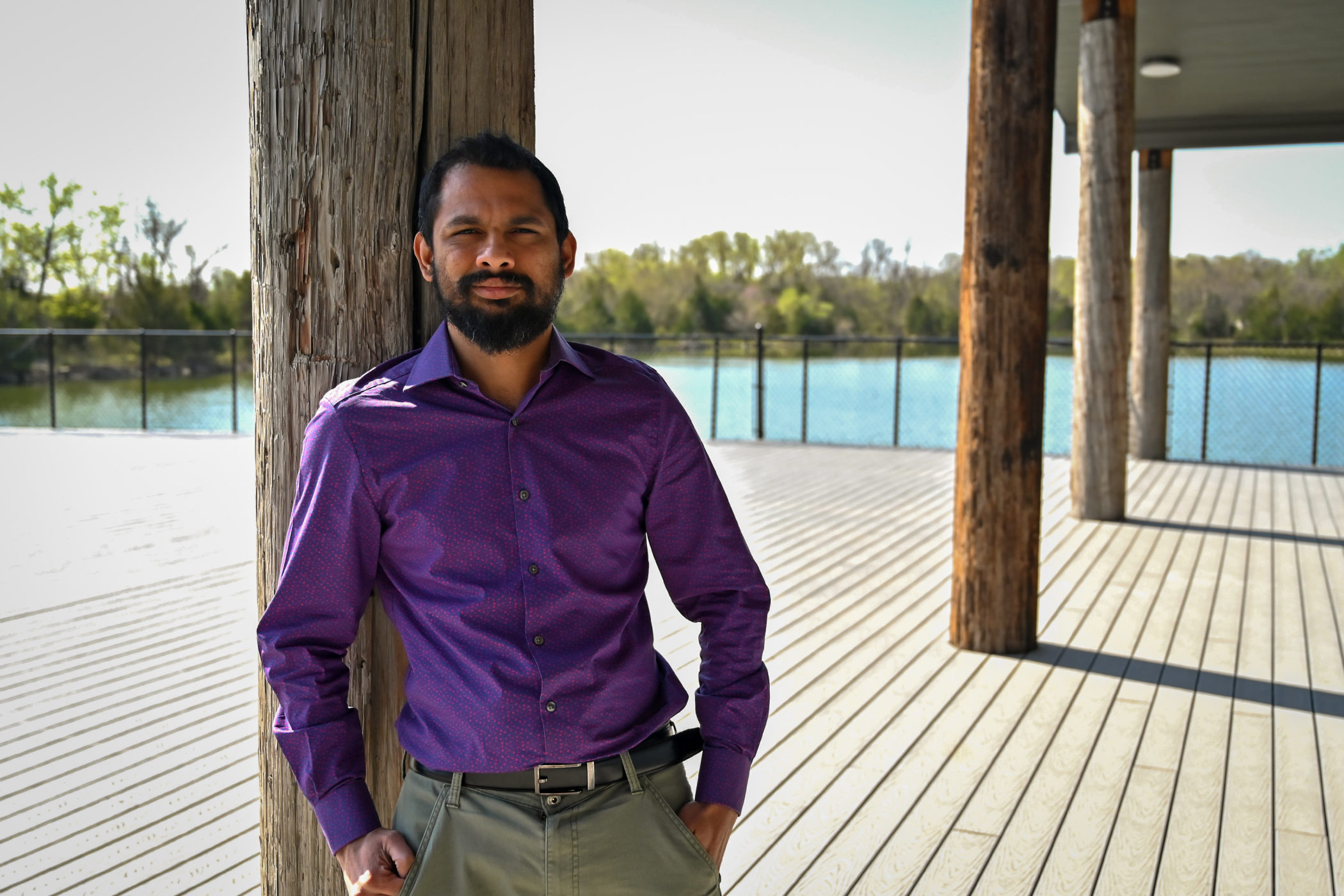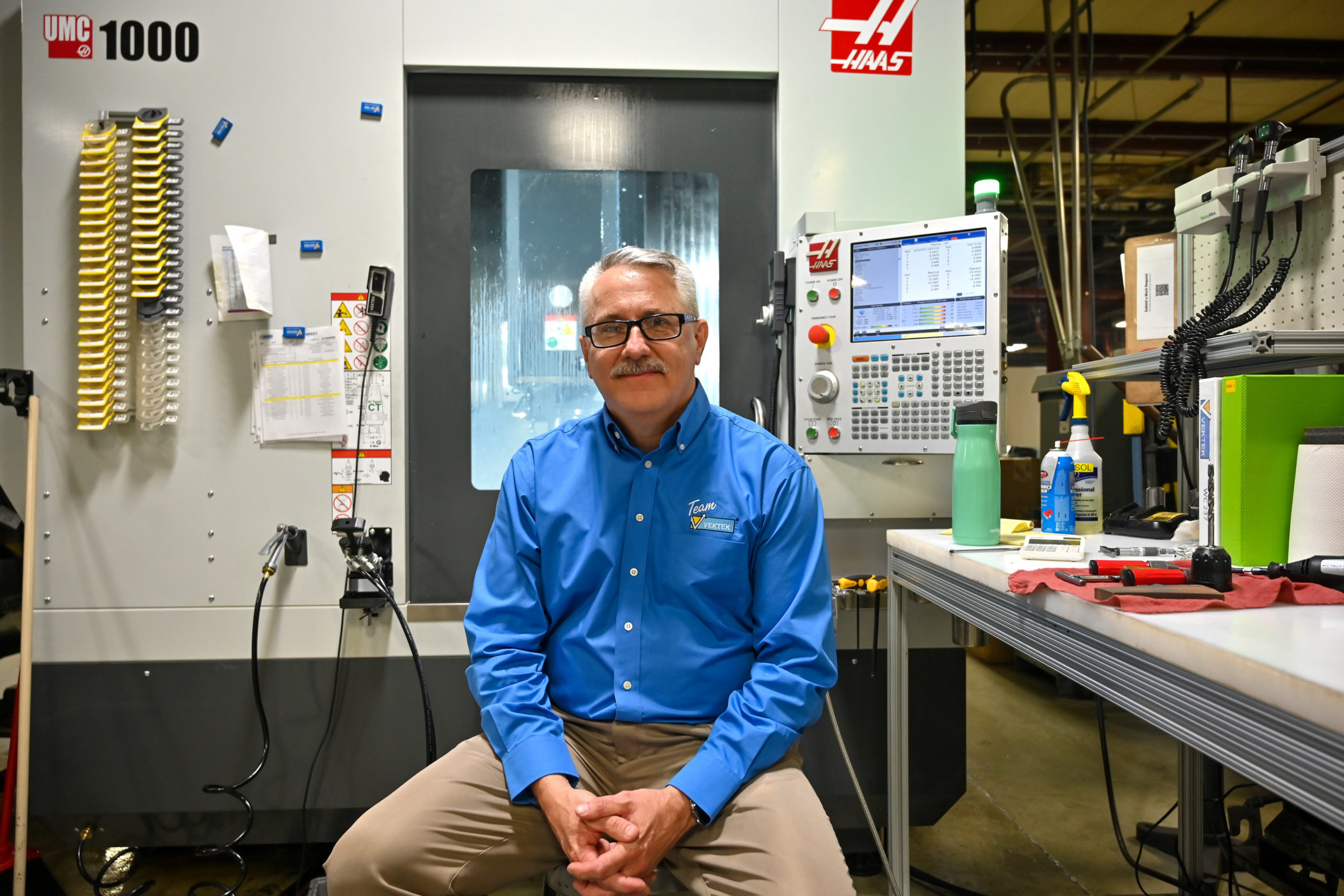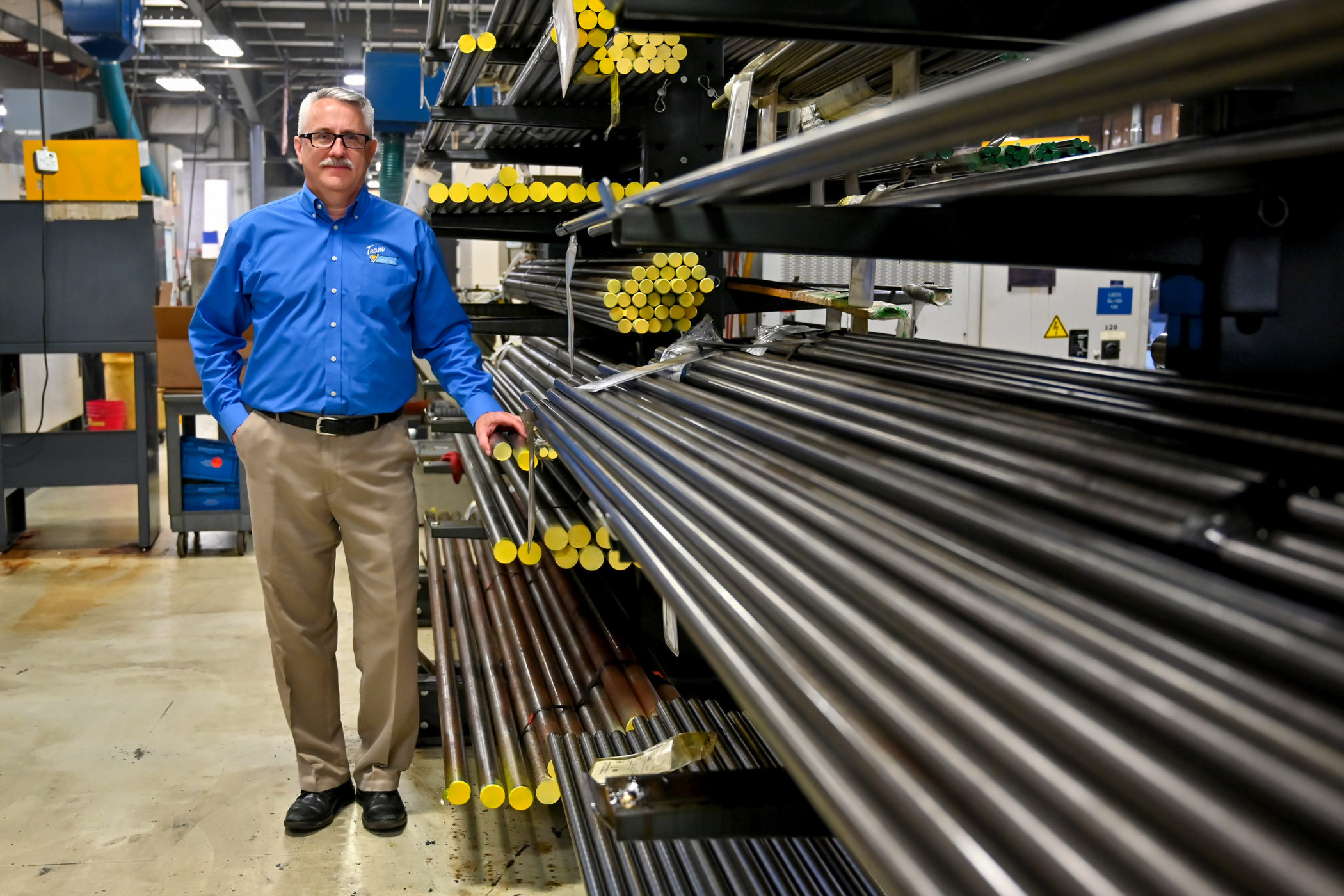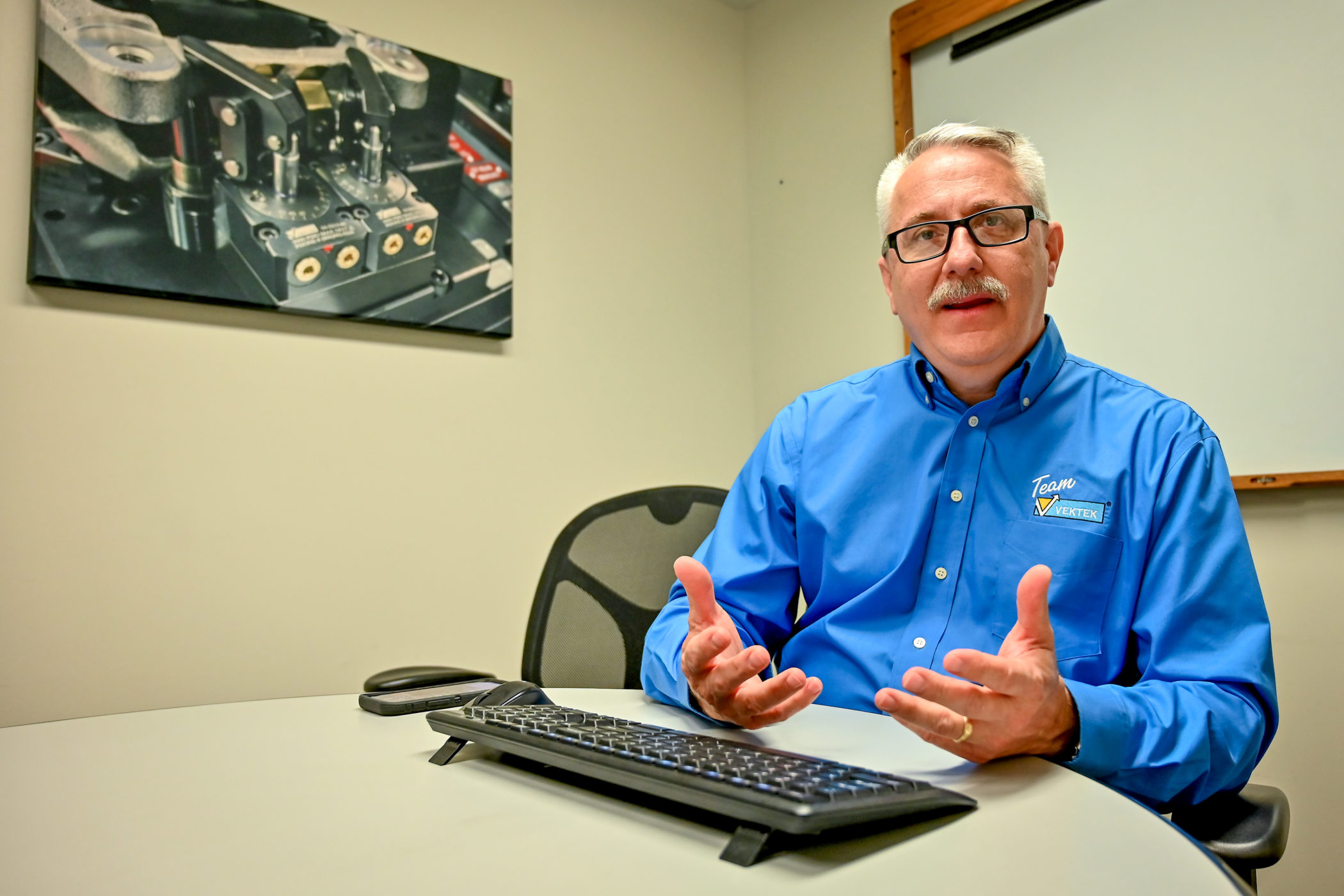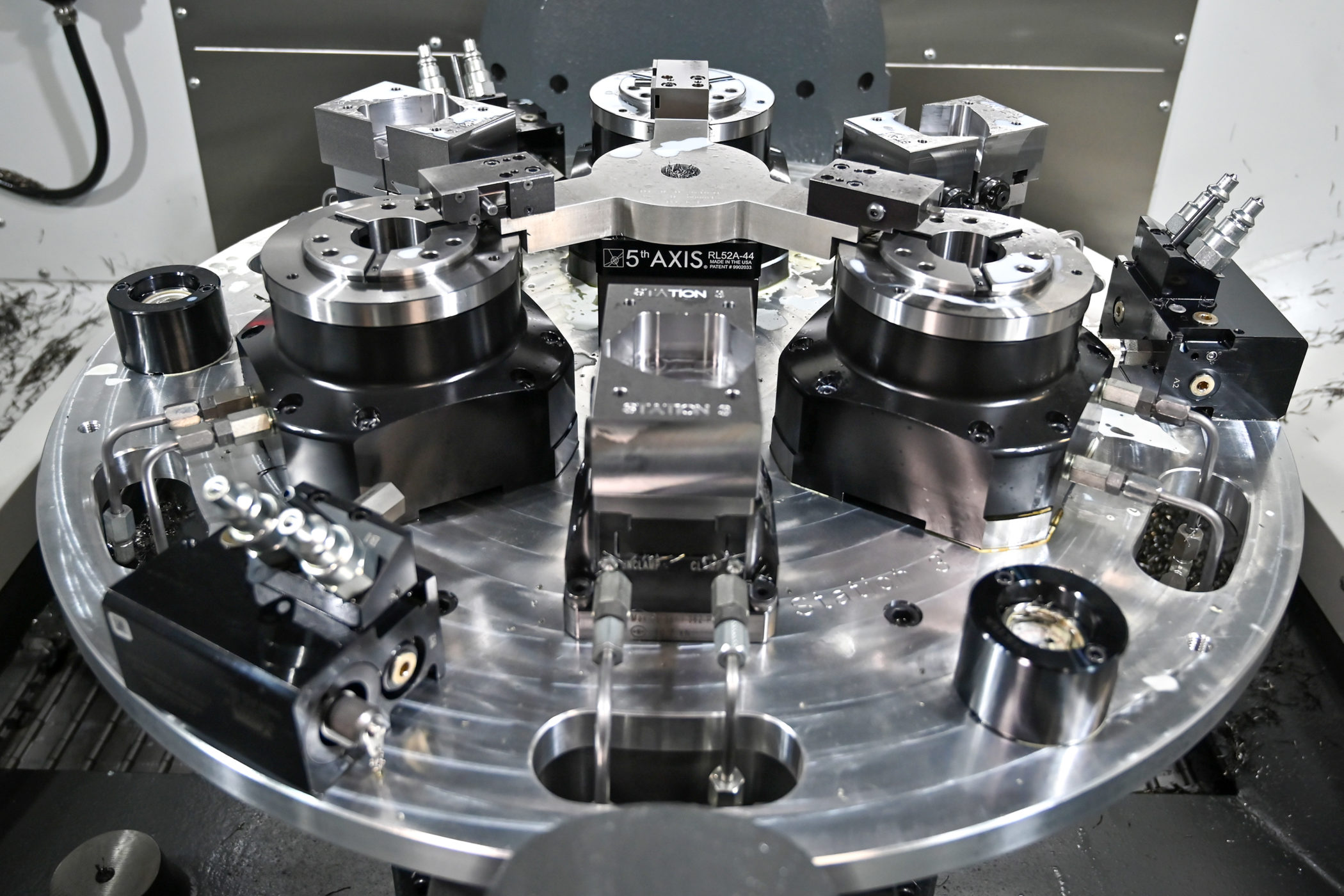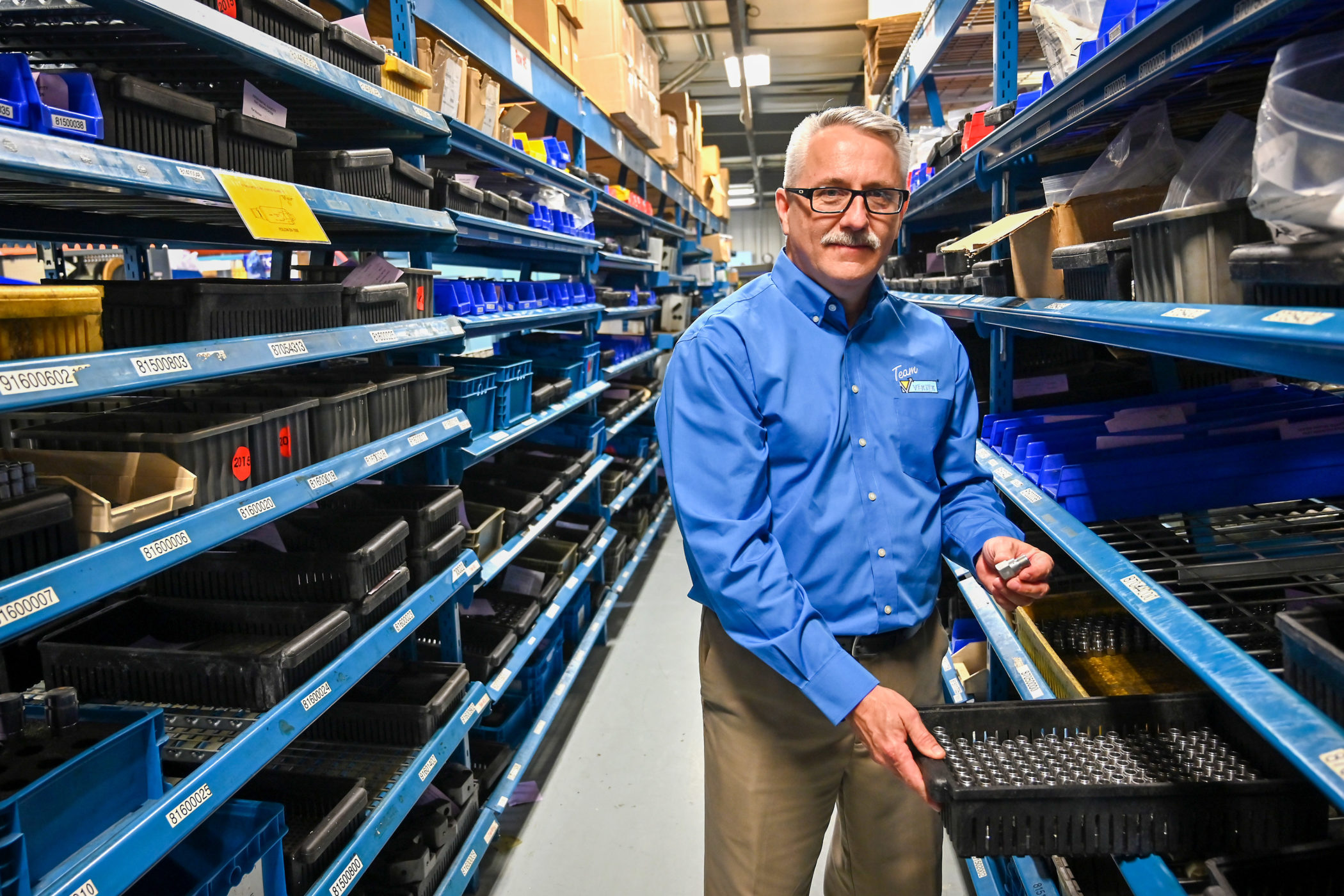Portraits of a community: Emporia
For anyone passionate about gravel cycling, there are few places more famous than the open, rolling terrain surrounding Emporia, Kansas.
The same goes for fans of disc golf, whose migration to the community each spring resembles that of the “ball golf” world to Augusta, Georgia, for a particular tournament that happens every April.
A truly unique ecological and geological specimen, the land also attracts connoisseurs of the natural world for whom sports could be an afterthought. Set amid the Flint Hills, the area is home one of the last vestiges of tallgrass prairie in the world, an ecosystem that thrives above its layers of limestone and shale.
And yet for the 24,000 people who live there Emporia is simply home — a place where they can enjoy all of the above all of the time.
Located roughly halfway between Kansas City and Wichita, Emporia is within a 90-minute drive of five larger cities and all the amenities they offer, but without the everyday inconveniences that comes with life in a more metropolitan setting. Instead, Emporia offers a small-town feel at an easy-going pace, a gig-speed fiber broadband network, educational opportunities at two colleges, and abundant outdoor activities in four directions. It’s a small, rural city that’s truly connected to the wider world in an ever-growing number of ways.
That’s why the Center on Rural Innovation visited Emporia for the eighth piece in its “Portraits of a community” series. Previous installments featured Taos, New Mexico, Springfield, Vermont, Ada, Oklahoma, Portsmouth, Ohio, Red Wing, Minnesota, Platteville, Wisconsin, and the Berkshires.
These stories are intended to shine a light on the people who make up the unique ecosystems within CORI’s Rural Innovation Network, which connects rural leaders and advocates around the country to accelerate their learning and amplify their work on the ground.
Doug Bjerkaas
President, Dynamic Discs
The first taste of Emporia for Doug Bjerkaas came as a disc golfer visiting for a tournament — the welcome he and other players received, how the community embraced the sport, amazed him. In 2016, he decided to relocate to the area when Dynamic Discs hired him as its event coordinator. Now, he’s president of the Emporia-born business that employs close to 90 people and whose flagship event — the Dynamic Discs Open — brought more than 2,000 people to the city this spring. (The world championship is also coming later this summer.) Given that impact and relationship, Bjerkaas’s aim is to ensure the fast-growing, tech-dependent company is always in a position to give back, as well as grow the sport in its backyard and beyond.
“Our fiber internet access is incredibly important to us. Our online retail sales at DynamicDiscs.com are incredibly important. We do a ton of marketing through social media, through YouTube, through other internet-driven, technology-driven platforms. Every time we turn around someone’s talking to us about a new software solution that’s going to save time for us, save money, so we’re definitely technology-driven now … we certainly depend on technology to conduct business, and I do think it’s been a big part of the growth of disc golf.”
“The quality of internet connection I have in Emporia, Kansas, through ValuNet is better than anything I ever had in Denver. So from a telecommuting standpoint — I moved here way before COVID, so there wasn’t the whole big move towards Zoom and Google Meet — I can remember dialing in to do video conferencing with my colleagues at Pearson Education … my colleagues commented on how much better my connection seemed to be when I was in Emporia than when I was living in Denver.”
“I think the thing that I love most about living in Emporia is something I learned in the first two or three months I was here: You’re eight minutes from everywhere. Having lived in Denver, where to get to work it was 45 minutes whether I took the light rail or the bus or driving, whatever it may be, it was just so complicated to get everywhere. Here, If someone needs you to be somewhere, and you can leave right away, you’re there in eight minutes. You don’t realize that the time you spend in a car — and I don’t care how many podcasts you listened to or music you listened to or whatever — that time could be much better spent on other things for quality of life than sitting in the car. It seemed like we had more time. It was easier to watch a television show at night or it was easier to go meet a friend, and it all has to do with everyone having 24 hours but living in a small town it seems like you have more than 24 hours.”
Jordan Davis
Information Security Analyst, Emporia State University
According to her sister, Jordan Davis is an “internet cop.” The oversimplified description of her role in the Emporia State IT department is an easy laugh about, but also a badge of honor for Davis, a native of nearby Lebo, whose career change while pregnant with her second child set her on the path to her position today, vetting security risks and accessibility features for systems and apps in use on the university’s networks and hardware, as well as leading security awareness training. She secured her GED after dropping out of high school, and was seven months pregnant when she left her front-desk job at the local Best Western to join a local telecom company. It was there that exposure to network technologies sparked a desire to further her education and she worked her way to a degree at Flint Hills Technical College. Today, the competitive and athletic mother of three has a job that supports her family, allows her to enjoy hobbies like bowling and pool, and still has time to expand her kids’ education with dinner-time quizzes as well as plenty of arts and crafts.
“The people are amazing, just always welcoming and everything. I have a great support system here — I just have my roots here. I had my first kid here in Emporia. I have three children now and they’re in school, and so I like to keep that community, that background, and I like to grow and do things within the community. I like to play in a pool league, and I bowl, so those people and the relationships that I made are what keep me here.”
“I took on a job at Birch Telecom when I was pregnant with my second child. … They saw something in me and it turned out to be the changing point of my life. I had no technical knowledge at all when I started that job in 2014. None. They hired me off the street, trained me on what I needed to do, and I just blew up from there. … That was the taste that I needed for my career because I started troubleshooting and doing tech support in Cisco routers, and once I learned how to write and troubleshoot and do the configuration for those, and it was fascinating. That’s why I went to college at Flint Hills Technical College here. It was the path I never knew I needed. It turned me around.”
“As soon as I got a taste of that tech world, I just ran with it. It’s something that comes natural to me. When I worked at Birch, I got promoted, I think, six or seven times in a matter of five years just because I caught on so quickly and I would just memorize it, know how to do it, and keep moving — what’s next? Going to college, I worked full time at night, 9 p.m. to 7 a.m. Then I turn around and go to class from 8 a.m. to 3 p.m. I’d pick up my kids from daycare, I put them to bed by 8:30 p.m. and I do it again. There were very long nights where I didn’t sleep, but I was just so driven for that knowledge and that pulled me into that tech field.”
Tom Mains
Manager of Sales and Marketing, ValuNet
Emporia owns a unique history in the field of telecommunications and Tom Mains is part of a small team that has been involved in most of it. After graduating from his hometown university with a business degree, Mains joined what was then Valu-Line in 1986 as a telephone technician. Since then, he’s graduated to different roles, working regionally and nationally, as the company names and technologies changed — all without leaving Emporia. The latest opportunity came when his former bosses decided to build and launch a local fiber broadband network under the ValuNet banner. When Mains hasn’t been scaling the cutting edge of network technology with his colleagues, he’s enjoyed hunting on a farm he owns with several friends, and helping run a local baseball club, the Emporia Reds.
“We’ve been on the forefront, Emporia — this little town in the middle of Kansas — has been on the forefront of doing this stuff. We’ve been recognized by the state of Kansas, by other telecom groups, as being on the cutting edge. We were a little bit conservative here in the fact that we’re gonna let someone else try (new technology) first, but also forward-thinking and forward-looking enough to recognize we’ve got to get moving on this, this is the future. … Every person that worked here, we built this from the ground up. Everyone here has a sense of ownership of this place. We didn’t have to go out and get a lot of people from outside positions.”
“You kind of doubt yourself — are we doing this right? Is there anything else we could be doing? But you talk to larger groups and find out no, you’re doing it right. You probably know a little more than some of them because they’ve got one job to do and that’s all they specialize where we were more the jack of all trades. But we feel we’ve really helped the city and the county and hospital here in Emporia, the bigger industries, stay on that forefront of technology and have that edge.”
“It’s funny, I talk to a lot of people my age now that they’re dying to move back here if they can. And now a lot of them are with remote working possibilities and all that. It’s possible for people to do that. They don’t have to live in these huge cities. It’s all the stuff — the grind of it, the commutes, the crime, things like that — that make me glad I live where I live. It’s kept me more grounded, not chasing something because I’ve gotta have these things. Just staying in Emporia has been better and, you know, we’re doing good for Emporia. We’ve kept Emporia pretty much on the upper end of technology for all this time.”
Scott O’Mara
Network and Telecommunications Supervisor, Emporia State University
Living in Emporia most of his life, Scott O’Mara has seen the town ebb and flow in different ways. O’Mara’s experienced his own, too. A former walk-on football player at Emporia State, it took one year of college to decide that path wasn’t for him. He worked in construction for a while, had a stint in manufacturing. Then he took a pay cut to transition into telecommunications — first pulling telephone and cable wire, but in time performing installations, learning systems, and handling fiber broadband as technology evolved. That’s how the avid cyclist wound up back at the college he left as a teen, working in the IT department and managing the campus network infrastructure. It’s a role that allows O’Mara to savor the outdoors, including a month-long bike trip this summer with his brother, a 2,500-mile ride along the great divide from Canada to Mexico.
“It’s not just the cycling. There’s six, seven lakes within a 50-mile radius from here, if not closer. My wife and I enjoy going out to the lakes to do paddleboarding, things like. We do a lot of camping. We’re pretty outdoorsy, we like to get out and enjoy it. So, yeah, there’s quite a bit around here to keep you here. And then, just taking drives out the Flint Hills, right? Load the Jeep up and head out into the hills — you know, pack a little grill and cooler, and sit out there in the middle of the hills and cook some burgers and just enjoy how remote it is.”
“When I got to Emporia State I was basically the telephone guy, but by then I knew a lot more than telephones. … Everything just kind of started snowballing here to where I started talking to the network architect that was previously here, you know, trying to work my way in with him to start learning more of the network side, getting more involved in the network side, which is where I’m at now. I’m getting to do switch work and data center work every day, and still doing some fiber splicing … but it’s just all things I’ve learned on the job. It wasn’t the traditional route, going to school, I just had good teachers who were on the contractor side of things. That’s how I learned. The enjoyment for me is I’m not just doing one thing. I still get to touch on a lot of different aspects.”
“I never would have thought in my life, back when I was 18 years old, that I’d own a house and be able to help my kids do whatever they’d want … I’m not saying not having a degree is a good thing, but I think it shows you don’t have to go the traditional way. You could go to a tech college, you could go wherever, those opportunities are out there. That’s how I started out pretty much like a grunt and got here. It’s about a person’s drive. How far do you want to go? I’ve got a good situation here. They take care of me and any opportunity I want to learn they’re here to back me up. Not everybody can do that. … All the businesses here that I’ve worked for gave me the opportunity for me to better myself and my family. Emporia’s done a lot for me in that sense.”
Mark Remmert
CEO, Green Dot Bioplastics
Growing up in Olathe, Kansas, when it was a small town with an excellent school system — not the fast-growing Kansas City suburb 10 times the size it is today — Mark Remmert couldn’t wait to experience the broader world. He parlayed that education, and a scholarship that followed at the University of Wyoming, where he studied geology, to a lengthy career with Dow Chemical and its subsidiaries that saw him live and work in eight countries, and spend more than a decade overseas. And not long after he returned to the U.S., to a ranch he’d purchased in the Flint Hills outside Emporia, he launched Green Dot Bioplastics, an operation that now has a team of about 20 seeking to to make plastics in a new, more sustainable and environmentally friendly way.
“As a kid, I never really saw much of anything. Our family didn’t take a lot of trips and things like that, so I was anxious to go see the world, or at least get out of Kansas. I’d never been to any cities like New York or Los Angeles or anything like that. But I knew that I wanted to go see some different things. I also knew that I wanted to be a scientist. … I got a job with a subsidiary of Dow Chemical right out of college and that started a lifetime of moving. I started work in California, moved to Oklahoma, moved to Illinois and Indiana and Arizona and back to California — all in about six years. At that point I didn’t really ever think about Kansas again, that I would ever come back here.”
“As both a scientist and somebody with very strong ideas about ecology and sustainability, you can’t sit here in the Flint Hills and look out over the vast grasslands and the ecosystems that go with that and not be touched by it. … There’s a rhythm to the seasons that I had never felt anywhere else. It’s the land, it’s the people, it’s the animals. And I’ve never been anywhere that was like that. I’ve never lived in a place where I can look out my window and see that every day. It would not have worked for me when I was 30 or 40 years old. But in my 60s, I really enjoy a simple, quiet life, and I enjoy observing things and thinking about things. And at the same time I get to do great science every day, and lead an amazing company full of amazing people doing amazing things.”
“To this point, because of the industry that we’re in, and the way young people feel about sustainability, we have been able to attract some amazing talent. I have people that have moved here from Colorado, New Mexico, Indiana, California, to work for us. And what I found is that while I think most young people want to live in a city — they want to lead exciting life, whatever they think that means — there are also a number of people that really relish this sort of rural environment, as long as they can have some connectivity to amenities, whether that’s a coffee shop or a community theater or a church or something that’s important to them. We have been very, very fortunate to be able to attract people, especially young people, that are really thriving here. They want to be here. And that’s really what this whole thing is about for me. I love bringing young people into the organization, giving them big jobs.”
Ben Sachs
Race Director, Unbound Gravel
The internet and word-of-mouth helped grow the annual Unbound Gravel race into the world’s premier gravel cycling event. Now Emporia’s fiber broadband is critical to the technology that helps Ben Sachs and his team pull it off each June, the foundation for a dizzying array of maps, spreadsheets, and checklists that keep everything on track. Sachs, a native Kansan who studied ecology and evolutionary biology at Rice, came to Emporia in 2021 to lead Unbound, which brings thousands to the city each year, and coordinate another gravel event in Arkansas for Life Time Fitness, which operates both races. The role has allowed him to buy his first house and get even more acquainted with the area’s world-renowned cycling terrain.
“I’m glad to kind of be in a bit more prominent position in the cycling world and happy to be leading this event that really puts Kansas, the Flint Hills, my home, on the map in the cycling zeitgeist. It’s not not very often that Kansas gets to be a leader in anything, a worldwide leader, and in gravel cycling we are. Gravel cycling and e-bikes are kind of the two fastest-growing sectors of the cycling industry right now. I think it’s pretty special that Kansas is kind of what brought on that whole gravel cycling wave. I’m proud to be continuing and taking up the mantle of running this event that brings people all over the world to celebrate that.”
“One thing that I really enjoy and I’m proud of, working (here) I’m able to have a salary that allows me to have bought a house, which is awesome. And the housing market is a little bit easier in a small town, even though it’s still pretty crazy, right? I’ve been able to move here, buy a house, work in the yard, work on the house. Like, I was working in the yard on Sunday and two people that I knew rode bikes by and stopped and said hi, two of them drove by and honked their horns at me. It’s a small community where you see people around that you know, and you smile and wave to everybody. And so that’s a really cool thing about living in a tight-knit community.”
“It’s kind of mind boggling to me how many different types of planning pieces go into running an event of this scale. … You have to take into account that you’re bringing thousands of people through here. And then there’s all the ordering, t-shirts and finisher items, fencing and barricade and signage, organizing electricity and water, sponsors and vendors, food, and all the different volunteer groups. There’s all these different pieces all over the place and kind of, you know, trying to juggle them all and keep it all in the air is definitely a big task, which requires keeping a lot of checklists and spreadsheets and trying to not let things slip through the cracks.”
Daniel Stair
CMTE Instructor, Flint Hill Technical College
Daniel Stair learned the trade and carried it out for more than a decade. Now he’s teaching Emporia’s next wave of technicians as the computerized machine tool engineering (CMTE) instructor at Flint Hills Technical College, the same program he graduated from in 2008. There’s plenty of machining to be done, but also a lot of math to make it work, which often surprises students after the fact. Stair and his wife, a math teacher across the street at Emporia High School, chose returning to their hometown, rather than opportunities in Lawrence, when they were early in their careers and are raising two young children in the same community where they grew up.
“Over the years, I had the opportunity to train a lot of people, either coming from the program or coming just to the company, there at Vektek, and I always really enjoyed that — teaching people my experiences and what I knew, just kind of passing on that. I think it’s really important that people do that. If you have a certain skill set and a craft or a trade, if you want it to pass on for the next generation, you have to be willing to pass on your knowledge. I know some people don’t really like to show things, but I’m the opposite. Because when I was at work, if I was able to teach somebody my job then that meant I got to do a different job.”
“If you say sine, cosine, or Pythagorean theorem to somebody, it’s like they’re instantly scared, so I try not to use those terminology words until after someone does it. Then when they do it and it’s like, ‘Oh, by the way, you just did that.’ So I try to keep everything very industry- focused and job-related. A machinist might call something different than maybe a certain mathematical term, and with us using that machinist language, it’s not as scary. … Because, I mean, we’re doing algebra. We have to figure in formulas and everything else. We just do it.”
“I like getting out and riding my bike. I like the fact that from my house I can be hitting gravel in less than five minutes. And so that’s nice. There’s a local bike shop here in town that hosts bike rides on Monday and Thursdays and so I usually try to hit a bike ride every once in a while. And I try to throw discs — I’m terrible at disc golf, but it’s nice to walk around. I think the ponds have claimed their fair share of my discs before. But we have really good disc golf. There’s a group of guys that I used to work with who I still go out and play disc golf with whenever I get the chance. It’s pretty fun.”
Tushar Walaskar
Security Analyst, Emporia State University
It took a stop in Buffalo for Tushar Walaskar to make his way to Emporia, but he never looked back. Originally from the city of Gwalior, in central India, Walaskar came to the U.S. to pursue a graduate degree in management information systems and said yes to a job at Emporia State University when he knew little about Kansas other than it had been the fictional home of Superman. That openness has paid off: Walaskar has a job he enjoys, freedom to continue learning, and a warm community in which he and his partner can raise their young daughter.
“When we talk about cities, towns like Emporia, it’s that we take a lot of things here for granted which are not available in bigger cities … a larger living space, less crime, so it’s a good place to raise your children. You can go from one part of the town to another in, say, 15 minutes — you have access to the hospitals and stores, access to the internet, whatever you need. There’s also so little pollution here as compared to some of the bigger cities where I’ve lived, like Mumbai or Delhi, where there’s too much population and traffic. It’s one of those things that if you’ve never been here, you know, if you’ve always lived in a bigger city, you would not understand like, okay, these things are pretty valuable.”
“My work is trying to assess security risks, IT risks to information systems and data for the university. We have to raise security awareness within the ESU community, we have programs for that. Then we have physical security — door access, electronic access — and I manage that, antivirus for the organization, how information flows, how we can make it more secure from different attacks that we get through email and other means. The day-to-day is not a typical day- to-day, it depends on the need of the hour, really — so if we are being attacked by a phishing campaign, my focus will go on that. And a lot of time it’s just training and learning about the technology and processes.”
“There are so many different things that I never get bored. If I’m inclined to work on technical stuff, I can do that. If I want to meet people. I can. I get to have the technical stuff, which I enjoy, plus I get to do the social stuff, interacting with users, meeting with students. The good thing is that you know, it’s not only one part of one aspect of the jobs that I’m growing in — I’m growing in all aspects. Sometimes it becomes like you’re too focused on the technical part that you do not have time for developing your soft skills, but here all my skills are being utilized. And I think that’s what I enjoy the most.”
Greg Yotz
Engineering Special Projects, Vektek
Greg Yotz’s passion for tinkering and technical pursuits was clear at a young age growing up outside Kansas City. He didn’t have a new toy for long before he tried taking it apart to see how it worked and putting it back together — most of the time, anyway. As an adult, that natural inclination powered a multi-decade, multi-discipline engineering career in Emporia. Since arriving in 1988 for a job with Hopkins Manufacturing where his focus was automation systems designed to aim headlights, he has developed several patents. Now a father of five and grandfather to 15 and counting, with whom he can hunt and fish, he also enjoys cycling around Emporia and participating in civic activities, volunteering for various events, fundraisers, and boards.
“When I came down to Emporia, we were actually building machine vision systems that aim headlights, and what we designed was a computer vision system that will look at the light itself, coming out of the headlamps, and automatically aim it. … It’s one of those things where, if you ask most people who lived in Emporia, they had no idea that that kind of automation and engineering was happening. But yeah, I did it right here in Emporia.”
“We still have very technical companies like Vektek where I work now, but many of the other industries have shifted to more consumer products. … That’s one of the reasons that we’re excited about the Fab Lab and supporting it, because I think in today’s modern world, we have a lot more opportunity for those type of high-level technical jobs in Emporia than any other time. When I started doing this in 1988, I had to travel to go to where the technology was being created, and it was very time-consuming and difficult. Now we can do a Zoom or an online seminar or collaborate with other engineers all around the world very easily. If I wanted to be an integrated circuit designer, I could design integrated circuits here and have them manufactured anywhere in the world. But I don’t need to be in the core of Silicon Valley to have resources and contacts and connections to do that. I can literally do that right here.”
“The quality of life, the low cost of living relative to some of those other places in the country, puts a different level of stress on you and your daily life, which I think is healthier and makes you enjoy life a little more. That’s really been important. We have a lot of what I would call the kind of common amenities in the midwest and here in Emporia we’re close enough to larger metropolitan areas like Wichita and Kansas City, if there’s something we want to do, visit a museum, a show, the theater, whatever, we have access to it but don’t have that stress of living in part of the country where population density is really high and all the problems that stem from that. I find this is an amazing place to raise a family, have friends, and live the American dream. No matter what that is for you personally. For me it’s being a father, husband, grandfather, engineer, inventor, entrepreneur and doing my part by investing my time supporting my communities through civic voluntarism.”
It doesn’t end here.
Emporia is a great example of what can happen when America’s small towns embrace the hard work required to reimagine what is possible and begin creating digital economy ecosystems that can meet the future head-on.
Through its Rural Innovation Initiative (RII), CORI’s work makes it possible for local leaders to connect and learn from each other in a community of practice. RII communities have a range of resources at their fingertips to help implement what CORI has identified as Direct Drivers of vibrant digital economy ecosystems:
- Access to Capital
- Scalable Tech Entrepreneur Support and Incubation
- Inclusive Tech Culture Building
- Access to Digital Jobs
- Digital Workforce Development and Support
Each of these elements allow rural communities like Emporia, the Berkshires, Red Wing, Platteville, and others to compete in the broader tech economy.
Learn more
To meet the Rural Innovation Network communities doing ecosystem building in small towns across the country, you can find a list here.
If you are a community interested in working with us to grow or build your own digital economy ecosystem, please contact us.
To learn more about our work in this space, be sure to check out our blog and sign up for our newsletter.
